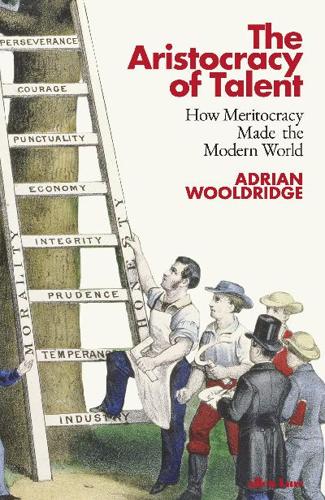
The Aristocracy of Talent: How Meritocracy Made the Modern World
by
Adrian Wooldridge
Published 2 Jun 2021
And how can we tell whether it is a sensible way of organizing the world or a trap unless we can see how it came about? The fact that there is no convenient history of meritocracy is remarkable, given that it is one of the great building blocks of the modern world – and an increasingly controversial one. There are dozens of histories of the other building blocks – democracy, freedom, capitalism – many of them excellent. There are still remarkably few studies of meritocracy, and the best of the lot, Michael Young’s The Rise of the Meritocracy, is as exotic as it is brilliant, a strange combination of history and science fiction. Anybody who wants to understand the subject has to venture down some obscure byways labelled ‘the history of education’, or ‘the history of the civil service’, or, most obscure of all, ‘the history of IQ testing’.30 The aim of this book is to fill this void: to explain where the meritocratic idea came from, how it replaced feudal ideas about ‘priority, degree and place’, how it evolved over the centuries and why it eventually became the world’s leading ideology.
…
It is solely with certain methods of interpreting the results of these tests that we, as scientific investigators, must differ.’18 From the late 1950s, however, a growing number of intellectuals began to turn against the meritocratic idea as such, concluding that the problem with meritocracy lay not in the poor implementation of a good idea but in the idea itself. Meritocracy was a false god – a dystopia masquerading as a utopia and an unjust society masquerading as the embodiment of justice. A convenient way to look at the revolt against the meritocratic idea is to examine three books that were the products of very different intellectual traditions – sociology, investigative journalism and philosophy – but which collectively mounted a powerful case against meritocracy. AGAINST THE MERITOCRATIC IDEA In 1958, Michael Young (1915–2002) published the book that gave ‘meritocracy’ its name.19 Many readers took the book to be a celebration of the meritocratic idea: after all, Young was a leading intellectual ornament of a Labour Party that prided itself on having opened up an oligarchical society to outside talent, the co-author of the 1945 Labour Manifesto and serial founder of left-wing think tanks and pressure groups.
…
These political upsets were driven by many things: the revolt of the provinces against the capitals; of the workers against the bosses; of traditionalists (particularly older people) against bohemians; of outsiders against the self-dealing establishment; of native-born populations against immigrants; of ‘somewheres’, who feel rooted in particular places, against ‘anywheres’, who are always on the move, in David Goodhart’s phrase. Though these revolts all play their part, they are overshadowed by a bigger revolt: the revolt of the masses against the meritocrats, of workers by hand against workers by brain, of meritocracy’s losers against meritocracy’s winners. Michael Young’s revolt against the meritocracy had come a decade earlier than he predicted. The groups that are driving the rise of populism have disparate and sometimes clashing material interests, consisting of a mish-mash of blue-collar workers, Main Street businesspeople such as real-estate agents and old-line manufacturers, and older voters who came of age before the great university expansion of the 1960s.
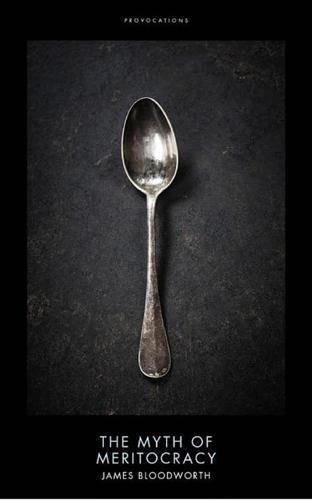
The Myth of Meritocracy: Why Working-Class Kids Still Get Working-Class Jobs (Provocations Series)
by
James Bloodworth
Published 18 May 2016
PROVOCATIONS THE MYTH OF MERITOCRACY WHY WORKING-CLASS KIDS GET WORKING-CLASS JOBS JAMES BLOODWORTH SERIES EDITOR: YASMIN ALIBHAI-BROWN MERITOCRACY ‘a social system, society, or organisation in which people have power because of their abilities, not because of their money or social position’ ‘This haphazard Mobocracy … must be replaced by a democratic aristocracy: that is by the dictatorship, not of the whole proletariat, but of that 5 per cent of it capable of conceiving the job and pioneering in the drive towards its divine goal’.1 — GEORGE BERNARD SHAW 1 The Rise of the Meritocracy, Michael Young, Pelican Books (1958). Contents Title Page Epigraph Part I Part II Part III Part IV Part V Part VI Part VII Part VIII Part IX Copyright Part I TURNING BRITAIN INTO a meritocracy is a modern political obsession. Seldom do today’s politicians talk about reducing economic inequality; instead they prefer to ruminate on ‘aspiration’, viewing it as their job to ensure that the most talented people rise to the top – and reap the financial rewards in the process. When the late Michael Young, author of Labour’s portentous 1945 election manifesto and inspiration behind the Open University, coined the word meritocracy back in 1958, it was intended as a warning.
…
Equality of opportunity is thus a utopian fantasy. Michael Young’s work offers us another reason to fear a sleek and well-oiled meritocracy. Britain today resembles Young’s dystopia only in the sense that disproportionate rewards are showered on the elite and contempt is increasingly shown to those at the bottom. Young predicted that meritocratic arguments would ultimately be used to justify large economic inequalities. By attributing poverty to personal failure, meritocracy is invariably useful in attempting to justify excessive rewards. Meritocracy may not exist in the Britain of 2016, but increasing numbers of people share the assumptions of the meritocrats.
…
Something similar might be said of British politicians and Young’s satirical essay on meritocracy. Rather than taking Young’s tome as a warning against a bleak and grossly unequal future, politicians of both right and left have embraced it. Twenty-first-century social democracy will defend to the death your right to be unequal to the next man – as long as merit, rather than wealth, has placed you on your allotted rung of the ladder. Young’s oracular warning of half a century ago has been recast as a blueprint. 2 ‘Down with Meritocracy’, Michael Young, The Guardian, 29 June 2001. 3 Equality, R. H. Tawney, Unwin Books, 3rd edition (1975). 4 The Rise and Rise of Meritocracy, edited by Geoff Dench, Wiley-Blackwell, 1st edition (2006). 5 ‘David Cameron brushes Boris Johnson aside over IQ comments’, Tomas Jivanda, The Independent, 2 December 2013. 6 Nick Clegg, speech to the Sutton Trust, 22 May 2012. 7 ‘Ed Miliband attacks social inequality’, Martha Linden and James Tapsfield, The Independent, 21 May 2012. 8 ‘Wanted by Labour, working-class MPs’, Michael Savage, The Times, 16 July 2012. 9 Hansard, HC Deb, 13 July 1807, vol. 30, cc. 1007–48. 10 Hansard, HC Deb, 17 July 1873, vol. 217, cc. 502–90. 11 Liberalism Divided: A Study in British Political Thought 1914–1939, Michael Freeden, Oxford University Press, 1st edition (1986).
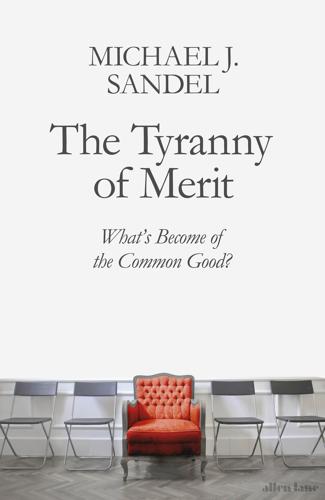
The Tyranny of Merit: What’s Become of the Common Good?
by
Michael J. Sandel
Published 9 Sep 2020
If, by contrast, you found yourself on the bottom rung of a meritocratic society, it would be difficult to resist the thought that your disadvantage was at least partly your own doing, a reflection of your failure to display sufficient talent and ambition to get ahead. A society that enables people to rise, and that celebrates rising, pronounces a harsh verdict on those who fail to do so. MERITOCRACY’S DARK SIDE The term “meritocracy” was invented under the shadow of this worry. Michael Young was a British sociologist affiliated with the Labour Party. In 1958, he wrote a book called The Rise of the Meritocracy . 3 For Young, meritocracy described a dystopia, not an ideal. He wrote at a time when the British class system was breaking down, giving way to a system of educational and professional advancement based on merit.
…
See Joseph Fishkin, Bottlenecks: A New Theory of Equal Opportunity (New York: Oxford University Press, 2014), pp. 83–99. 73. Blair quoted in David Kynaston, “The Road to Meritocracy Is Blocked by Private Schools,” The Guardian , February 22, 2008. 74 . Tony Blair, “I Want a Meritocracy, Not Survival of the Fittest,” Independent , February 9, 2001: independent.co.uk/voices/commentators/i-want-a-meritocracy-not-survival-of-the-fittest-5365602.html . 75. Michael Young, “Down with Meritocracy,” The Guardian , June 28, 2001. 76. Ibid. 77. Ibid. 6. THE SORTING MACHINE 1. Jerome Karabel, The Chosen: The Hidden History of Admission and Exclusion at Harvard, Yale, and Princeton (Boston: Houghton Mifflin, 2005), pp. 21–23, 39–76, 232–36. 2.
…
Beyond hollowing out public discourse, the reign of technocratic merit has reconfigured the terms of social recognition in ways that elevate the prestige of the credentialed, professional classes and depreciate the contributions of most workers, eroding their social standing and esteem. It is this aspect of technocratic merit that contributes most directly to the angry, polarized politics of our time. THE POPULIST UPRISING Six decades ago, a British sociologist named Michael Young anticipated the hubris and resentment to which meritocracy gives rise. In fact, it was he who coined the term. In a book called The Rise of the Meritocracy (1958), he asked what would happen if, one day, class barriers were overcome, so that everyone had a truly equal opportunity to rise based solely on his or her own merit. 14 In one respect, this would be something to celebrate; the children of the working class would at last compete fairly, side by side with the children of the privileged.
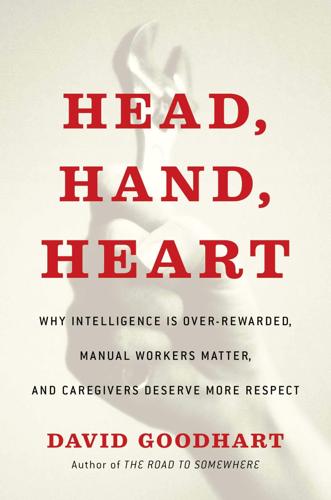
Head, Hand, Heart: Why Intelligence Is Over-Rewarded, Manual Workers Matter, and Caregivers Deserve More Respect
by
David Goodhart
Published 7 Sep 2020
Goldthorpe, Social Mobility and Education in Britain: Research, Politics and Policy (Cambridge, UK: Cambridge University Press, 2018). 20 Alice Sullivan, “The Path from Social Origins to Top Jobs: Social Reproduction via Education,” British Journal of Sociology 69, no. 3 (2018), 782–84. 21 Jo Blanden, Paul Gregg, and Stephen Machin, Intergenerational Mobility in Europe and North America: A Report Supported by the Sutton Trust, Centre for Economic Performance, London School of Economics/Sutton Trust (2005). 22 Peter Saunders, Social Mobility Myths (London: Civitas, 2010), 69. 23 Michael Young, The Rise of the Meritocracy, 1870–2033 (London: Thames & Hudson, 1958). 24 Charles Murray, “The Bell Curve Explained: Part 1, the Emergence of a Cognitive Elite,”, American Enterprise Institute, May 12, 2017, https://www.aei.org/society-and-culture/the-bell-curve-explained-part-1-the-emergence-of-a-cognitive-elite/. 25 For summary, see Toby Young, “The Fall of the Meritocracy,” Quadrant Online, September 7, 2015, https://quadrant.org.au/magazine/2015/09/fall-meritocracy/. 26 “The Rise and Rise of the Cognitive Elite: Brains Bring Ever Larger Rewards,” Economist, January 22, 2011. 27 “Modern Women Marrying Men of the Same or Lower Social Class,” IPPR May 4, 2012, https://www.ippr.org/news-and-media/press-releases/modern-women-marrying-men-of-the-same-or-lower-social-class. 28 David Willets, The Pinch: How the Baby Boomers Took Their Children’s Future—and Why They Should Give it Back (London: Atlantic, 2011). 29 Charles Murray, Coming Apart: The State of White America, 1960–2010 (New York: Crown Forum, 2012), 59. 30 Richard Reeves, Dream Hoarders: How the American Upper Middle Class Is Leaving Everyone Else in the Dust, Why That Is a Problem, and What to Do About It (Washington, DC: Brookings Institution, 2017). 31 Daniel Markovits, The Meritocracy Trap: How America’s Foundational Myth Feeds Inequality, Dismantles the Middle Class, and Devours the Elite (London: Allen Lane, 2019). 32 James Bloodworth, The Myth of Meritocracy, 67. 33 Richard Breen, Social Mobility in Europe (Oxford, UK: Oxford University Press, 2004). 34 Andrew Hacker, “The White Plight,” The New York Review of Books, 10 May 2012. 35 David Robson, The Intelligence Trap. 36 Dalton Conley and Jason Fletcher, The Genome Factor: What the Social Genomics Revolution Reveals About Ourselves, Our History, and the Future (Princeton, NJ: Princeton University Press, 2017). 37 Kwame Anthony Appiah, “The Myth of Meritocracy: Who Really Gets What They Deserve?,” Guardian, October 19, 2018, https://www.theguardian.com/news/2018/oct/19/the-myth-of-meritocracy-who-really-gets-what-they-deserve. 38 Michael Young, The Rise of the Meritocracy, 135–36. 39 Kwame Anthony Appiah, The Lies That Bind: Rethinking Identity (London: Profile Books, 2018), 178. Chapter Four: The Era of Educational Selection 1 Mark Bovens and Anchrit Willie, Diploma Democracy: The Rise of Political Meritocracy (Oxford, UK: Oxford University Press, 2017), 21. 2 Terry Wrigley, “The Rise and Fall of the GCSE: A Class History,” History Workshop Online, December 1, 2012. 3 Mike Hicks, “The Recruitment and Selection of Young Managers by British Business, 1930–2000,” St.
…
One might also, therefore, expect average ability levels to start to vary between broad social classes and for Michael Young’s nightmare of a hereditary cognitive elite to have come closer. Young’s dystopian futuristic fantasy, The Rise of the Meritocracy, published in 1958 (after having been rejected by many publishers), describes Britain’s progression to a radical meritocracy in the period 1870 to 2033 via extreme education reforms and annual IQ tests: “By 1990 or thereabouts all adults with I.Q.s of more than 125 belonged to the meritocracy. A high proportion of the children with I.Q.s over 125 were the children of these same adults.
…
Goldthorpe, Social Mobility and Education in Britain: Research, Politics and Policy (Cambridge, UK: Cambridge University Press, 2018). 20 Alice Sullivan, “The Path from Social Origins to Top Jobs: Social Reproduction via Education,” British Journal of Sociology 69, no. 3 (2018), 782–84. 21 Jo Blanden, Paul Gregg, and Stephen Machin, Intergenerational Mobility in Europe and North America: A Report Supported by the Sutton Trust, Centre for Economic Performance, London School of Economics/Sutton Trust (2005). 22 Peter Saunders, Social Mobility Myths (London: Civitas, 2010), 69. 23 Michael Young, The Rise of the Meritocracy, 1870–2033 (London: Thames & Hudson, 1958). 24 Charles Murray, “The Bell Curve Explained: Part 1, the Emergence of a Cognitive Elite,”, American Enterprise Institute, May 12, 2017, https://www.aei.org/society-and-culture/the-bell-curve-explained-part-1-the-emergence-of-a-cognitive-elite/. 25 For summary, see Toby Young, “The Fall of the Meritocracy,” Quadrant Online, September 7, 2015, https://quadrant.org.au/magazine/2015/09/fall-meritocracy/. 26 “The Rise and Rise of the Cognitive Elite: Brains Bring Ever Larger Rewards,” Economist, January 22, 2011. 27 “Modern Women Marrying Men of the Same or Lower Social Class,” IPPR May 4, 2012, https://www.ippr.org/news-and-media/press-releases/modern-women-marrying-men-of-the-same-or-lower-social-class. 28 David Willets, The Pinch: How the Baby Boomers Took Their Children’s Future—and Why They Should Give it Back (London: Atlantic, 2011). 29 Charles Murray, Coming Apart: The State of White America, 1960–2010 (New York: Crown Forum, 2012), 59. 30 Richard Reeves, Dream Hoarders: How the American Upper Middle Class Is Leaving Everyone Else in the Dust, Why That Is a Problem, and What to Do About It (Washington, DC: Brookings Institution, 2017). 31 Daniel Markovits, The Meritocracy Trap: How America’s Foundational Myth Feeds Inequality, Dismantles the Middle Class, and Devours the Elite (London: Allen Lane, 2019). 32 James Bloodworth, The Myth of Meritocracy, 67. 33 Richard Breen, Social Mobility in Europe (Oxford, UK: Oxford University Press, 2004). 34 Andrew Hacker, “The White Plight,” The New York Review of Books, 10 May 2012. 35 David Robson, The Intelligence Trap. 36 Dalton Conley and Jason Fletcher, The Genome Factor: What the Social Genomics Revolution Reveals About Ourselves, Our History, and the Future (Princeton, NJ: Princeton University Press, 2017). 37 Kwame Anthony Appiah, “The Myth of Meritocracy: Who Really Gets What They Deserve?
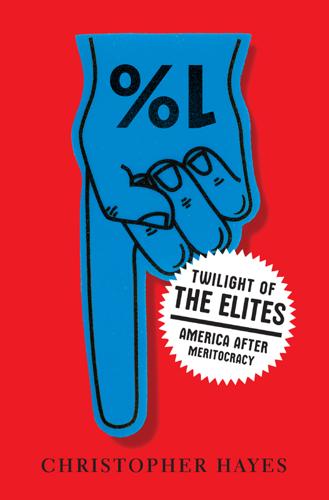
Twilight of the Elites: America After Meritocracy
by
Chris Hayes
Published 11 Jun 2012
Hernandez, “The Big Cram for Hunter High School,” New York Times, January 3, 2009. 15 In 1965, the school’s administrators at the City University of New York: Elizabeth Stone, The Hunter College Campus Schools for the Gifted: The Challenge of Equity and Excellence (New York: Teachers College Press, 1992), p. 3 16 The result is that just 10 percent of Hunter High School’s students are poor enough to qualify for free or reduced-price lunch: Hunter College Campus Schools 2009 Basic Educational Data Systems Report http://hces.hunter.cuny.edu/BasicEdDataSysReport_2009.pdf. 17 “we frankly recognize that democracy can be no more than aspiration”: Michael Young, The Rise of the Meritocracy (1958 repr, New Brunswick, N.J.: Transaction Publishers, 1994), p. 11. 18 “The book was a satire meant to be a warning”: Michael Young, “Down with Meritocracy,” Guardian, June 28, 2001. 19 “The Americans never use the word peasant”: See Alexis de Tocqueville, Democracy in America, vol. 1 (London: Longmans, Green, and Co., 1875), p. 321. 20 “I agree with you that there is a natural aristocracy among men”: The Essential Jefferson, ed.
…
The playing field may be level, but certain kids get to spend nights and weekends practicing on it in advance of the competition. THE CONCEPT of meritocracy is so essential to our ideas about American exceptionalism that it’s surprising to learn the word itself is an import. It was coined by Michael Young, Labour member of parliament and social critic, in his 1958 book, The Rise of the Meritocracy. Written as a history of British political, social, and economic development from the perspective of an academic writing in 2034, the book details the development of a new social system in Britain that upended the old British caste system. In its place, the British Labour government creates the meritocracy, which swaps out the aristocratic elite for a ruling class composed of bright and industrious members of all classes.
…
When an Indian tycoon casually suggested to Thomas Friedman that the explosion of the Internet, cheap computing, and fiber-optic cables meant that “the playing field is being flattened,” Friedman had happened upon the uniting conceit for his bestseller The World Is Flat. What Friedman is actually describing and effusively praising is a kind of neoliberal globalized version of meritocracy where Indian and Chinese software engineers play the role that hard-studying Jews from Brooklyn once did when they crashed the gates of Harvard. Michael Young paints the meritocracy as an idea that originated on the left but came to devour it. In The Rise of the Meritocracy he wryly notes in a footnote that the origin of the “unpleasant term, like that of ‘equality of opportunity’ is still obscure. It seems to have been first generally used in the sixties of the last century in small circulation journals attached to the Labour Party.”
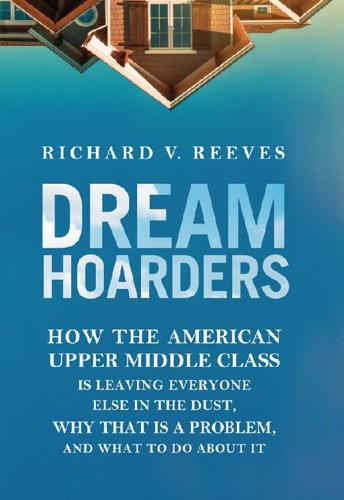
Dream Hoarders: How the American Upper Middle Class Is Leaving Everyone Else in the Dust, Why That Is a Problem, and What to Do About It
by
Richard V. Reeves
Published 22 May 2017
The goal is not to weaken the market; it is to make it more competitive by equalizing development or merit. Meritocracy is not synonymous with fairness. It is essential to grasp this point if we are to stand any chance of moving toward more equal opportunity. It was, in fact, the point that the man who coined the term meritocracy was trying, and failing, to make right from the start. MICHAEL YOUNG’S UNHEEDED WARNINGS Michael Young was a British sociologist and author of the 1958 dystopian novel The Rise of the Meritocracy. The purpose of his book was to warn of the dark side of meritocracy. Young struggled to get the book published (in the end a friend did it out of kindness) and worried that his new term would not be taken seriously since it mashes together one Latin and one Greek word.
…
Christopher Hayes, Twilight of the Elites: America after Meritocracy (New York: Broadway, 2012), p. 40. 3. “An Hereditary Meritocracy,” The Economist, January 21, 2015. (www.economist.com/news/briefing/21640316-children-rich-and-powerful-are-increasingly-well-suited-earning-wealth-and-power). 4. Debopam Bhattacharya and Bhashkar Mazumder, “A Nonparametric Analysis of Black-White Differences in Intergenerational Income Mobility in the United States,” Quantitative Economics 2, no. 3 (November 2011): pp. 335–79. 5. Michael Young, The Rise of the Meritocracy (1958; repr., New Brunswick: Transaction Publishers, 1994), p. 166. 6.
…
Class rigidities of this kind may blunt market dynamism by reducing the upward flow of talent and leaving human capital underutilized among the less fortunate. Market competition is not only essential for growth and prosperity; it also provides an opportunity for meritocratic social mobility, but only if there are fair chances to acquire the kind of merit that is being rewarded. Right now we have meritocracy without mobility. We can’t say we weren’t warned. The Rise of the Meritocracy, Michael Young’s 1959 book that coined the term, describes a dystopia in which “those who are judged to have merit of a certain kind harden into a new social class without room in it for others.”16 THE UPPER MIDDLE CLASS ENGAGES IN UNFAIR OPPORTUNITY HOARDING Not all upper middle-class advantage results from an open contest.
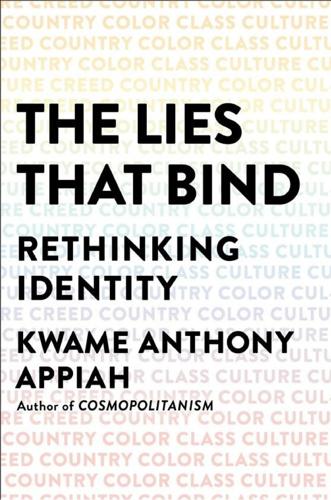
The Lies That Bind: Rethinking Identity
by
Kwame Anthony Appiah
Published 27 Aug 2018
Benjamin Jowett. “. . . cum referre negas, quali sit quisque parente natus, dum ingenuus . . . ,” Horace Satires 1.6. 40.“Si quid est aliud in philosophia boni, hoc est, quod stemma non inspicit,” Epistulae Morales ad Lucilium, 44. 41.Michael Young, “Meritocracy Revisited,” Society 35 no. 2 (January–February 1998), 378. 42.Michael Young, The Rise of the Meritocracy (London: Thames & Hudson, 1958), 18–19. In a footnote attached to the first use of this word, Young’s sociologist of the future writes: “The origin of this unpleasant term, like that of ‘equality of opportunity,’ is still obscure. It seems to have been first generally used in the sixties of the last century in small-circulation journals attached to the Labour Party, and gained wide currency much later on.” 43.Ibid., 85–86.
…
If this is true, it can take literally hundreds of years for the effects of differences in wealth and status to disappear. 50.Michael Young, “Down with Meritocracy,” The Guardian, June 28, 2001. 51.Noel G. Annan, Our Age: Portrait of a Generation (London: Weidenfeld & Nicholson, 1990), 257. 52.Each year nearly 175,000 are enrolled in its courses; Oxford University, by comparison, has 275,000 living alumni altogether. http://www.open.ac.uk/about/main/sites/www.open.ac.uk.about.main/files/files/fact_figures_1415_uk.pdf. 53.Young, The Rise of the Meritocracy, 135–136. 54.Michael Young, The Elmhirsts of Dartington (London: Routledge & Kegan Paul, 1982), 156. 55.Ronald Dworkin, Sovereign Virtue: The Theory and Practice of Equality (Cambridge: Harvard University Press, 2000), 253. 56.
…
Horace, the son of a freed slave, made a similar point four centuries later when he praised Maecenas, the richest of the Roman patrons of the Augustan age, for thinking “it’s no matter who your parents are, so long as you’re worthy.”39 A century or so after Horace’s birth, Seneca wrote in his letters that “if there is anything good in philosophy, it’s this: it doesn’t inspect your pedigree.”40 True, class can get you respect, but if it comes merely from ancestry, it’s hard to see why anyone, including you, should think of it as something you are really entitled to. Shouldn’t we care most about the forms of esteem that reflect things we ourselves have achieved? This ideal may not be new, but it has achieved its greatest influence under a modern term: meritocracy. THE NEW RULING CLASS It’s worth recalling, though, that the word “meritocracy” was invented in a work of satire, Michael Young’s The Rise of the Meritocracy. Published in 1958, the book was not a sociological tract but a work of fiction, purporting to be a sociological analysis written in 2033, looking back at the development of a new British society. In that distant future, unlike the class society of the 1950s, riches and rule were earned, not inherited.
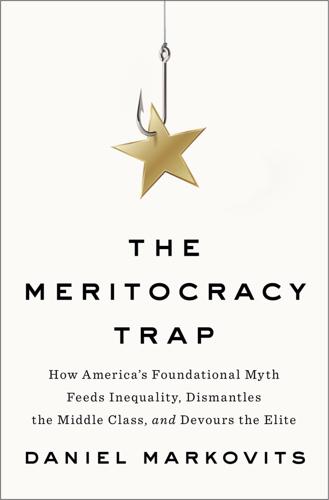
The Meritocracy Trap: How America's Foundational Myth Feeds Inequality, Dismantles the Middle Class, and Devours the Elite
by
Daniel Markovits
Published 14 Sep 2019
Sachs and Andrew M. Warner, “Natural Resource Abundance and Economic Growth,” NBER Working Paper No. 5398 (December 1995). Chapter Nine: The Myth of Merit The word meritocracy: Oxford Etymology Dictionary, s.v., “Meritocracy,” accessed October 2, 2018, www.etymonline.com/word/meritocracy#etymonline_v_31201. The Rise of the Meritocracy: Young, The Rise of the Meritocracy. even into the new millennium: Michael Young, “Comment: Down with Meritocracy,” Guardian, June 29, 2001, accessed September 28, 2018, www.theguardian.com/politics/2001/jun/29/comment. by deploying the norms of the old regime: The rise of mass democracy, for example, cannot be assessed according to earlier political principles concerning lineage and the authority of a sovereign over her subjects.
…
NINE THE MYTH OF MERIT The word meritocracy is barely older than the practices that it describes. It was coined by the British sociologist Michael Young in his 1958 satire The Rise of the Meritocracy. Young opposed meritocracy in scathing terms. The Rise of the Meritocracy is a cry of warning rather than a song of praise. A current of foreboding and even violence runs through the narrative. And Young himself regarded the book as a dystopian fantasy, along the lines of George Orwell’s 1984 or, more immediately, Aldous Huxley’s Brave New World. Young imagined that meritocracy would use increasingly accurate and increasingly early tests for native intelligence ruthlessly to sort people into schools, universities, and eventually jobs.
…
“treated as uncouth ruffians”: Fraser, Every Man a Speculator, 488. threatened with legislative sanction: Fraser, Every Man a Speculator, 487–90. gentlemen of independent means: Fraser, Every Man a Speculator, 488. “dressed in a suit”: See Michael Young, The Rise of the Meritocracy (New Brunswick, NJ: Transaction Publishers, 1994), 18. Hereafter cited as Young, The Rise of the Meritocracy. “nourished themselves”: Young, The Rise of the Meritocracy, 18. reflected long-standing conventional wisdom: American Bar Association Committee on Economics of Law Practice, The Lawyer’s Handbook (St. Paul, MN: West Publishing Company, 1962), 287. William Ross similarly cites a 1965 American Bar Association Survey that reported that law firm associates typically billed just fourteen hundred to sixteen hundred hours annually and partners just twelve hundred to fourteen hundred.
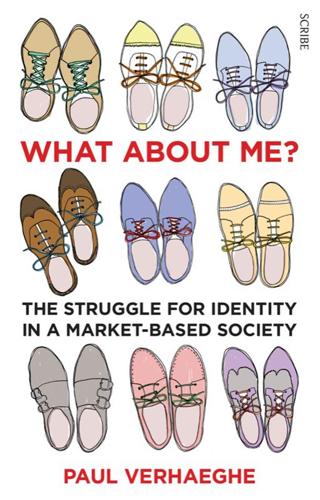
What About Me?: The Struggle for Identity in a Market-Based Society
by
Paul Verhaeghe
Published 26 Mar 2014
2 It is precisely this merger that has brought about a turning point, culminating in what can best be described as a neo-liberal meritocracy. The significance of this turning point can be judged by its consequences. In no time, social mobility ground to a halt, the social divide became ever greater, and freedom made way for general paranoia. In other words, exactly the opposite of what was originally intended. There are two reasons for this. First, the notion that everyone starts off in the race of life with equal opportunities is illusory. Second, after a while, a meritocracy gives rise to a new elite, who carefully shut the door on those coming up behind them. In 1958, British author Michael Young foresaw this process with visionary clarity in his satirical novel The Rise of the Meritocracy.
…
With regard to the latter, in August 2009 the British newspaper The Observer reported an increase in discrimination against pregnant women and mothers in the workplace, and experience shows that it is very hard to combine a career with motherhood. Universities are absolutely no exception to this rule: how many of them have adequate childcare facilities? Meritocracy ties in perfectly with phallic competition. It’s no coincidence that the bloody social revolution at the end of Michael Young’s book The Rise of the Meritocracy is organised by highly educated women. The underclass, of course, isn’t blind to what is going on; it accuses the top layer of arrogance, a lack of self-criticism, and, increasingly, self-enrichment. The message conveyed to the losers conflicts with their own experiences.
…
This is the economic take on meritocracy, which ties in very closely with the notion of ‘negative liberty’: the individual may not be hampered by others, least of all by a paternalistic state. Americans have traditionally regarded this from a purely economic perspective — no state intervention in business — whereas the original European interpretation was predominantly political: a state should not impose ideologies on its people. The combination of those two notions, liberty and getting what you deserve, explains meritocracy’s universal attraction. Meanwhile, educational and economic meritocracy have merged, to the extent that intellectual achievements without economic added value are regarded as largely worthless.
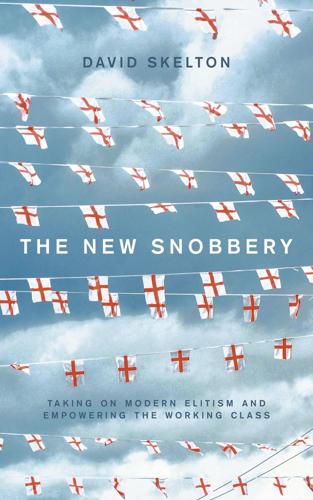
The New Snobbery
by
David Skelton
Published 28 Jun 2021
We also know that those who succeed are particularly keen to ascribe their success to talent rather than chance. Perhaps as important a question is whether the concept of a pure meritocracy creates the conditions and the rationale for the rise of the new snobbery. Indeed, the downside of pure meritocracy was clear to the man who came up with the phrase. Michael Young was a remarkable polymath. He drafted large parts of Labour’s extraordinary 1945 manifesto and established both the Consumers’ Association (now largely known as Which?) and the Open University, but he is probably now best remembered for writing The Rise of Meritocracy. Rather than advocating for the merit-based system, Young’s goal was to write a darkly dystopian fantasy that warned of the dangers of a society that had meritocracy as its organising principle.
…
Jaspal, ‘The roles of socio-economic status, occupational health and job rank on the epidemiology of different psychiatric symptoms in sample UK workers’, Community Mental Health Journal, 6 March 2018. 9 James Bloodworth, The Myth of Meritocracy: Why Working-Class Kids Still Get Working-Class Jobs (London: Biteback, 2016). 10 Sandel, The Tyranny of Merit, p. 26. 11 F. A. Hayek, The Constitution of Liberty (Oxford: Routledge, 2006). 12 Michael Young, ‘Down with meritocracy’, The Guardian, 29 June 2001. 13 Quoted in Wheen, ‘Satirical fiction is becoming Blair’s reality’. 14 Patrick Deneen, ‘A Tyranny Without Tyrants’, American Affairs, 20 February 2021. 15 Sandel, The Tyranny of Merit. 16 David Goodhart, ‘Middle May: the premier is one of the first to recognise Britain’s emerging political fault line’, The Spectator, 20 May 2017. 17 Quoted in ‘Classic podium: the Tories’ historic mission’, The Independent, 2 October 1998. 18 Quoted in Jonty Bloom, ‘The European Coal and Steel Community turns sixty’, BBC News, 10 August 2012. 19 Aditya Chakrabortty, ‘Why doesn’t Britain make things any more?’
…
THE MERITOCRATIC OBSESSION AND THE GULF IN ESTEEM A political obsession with meritocracy has dominated British politics since the 1980s. This is the theoretically noble conception that success should depend on merit rather than good fortune. Margaret Thatcher famously said, ‘I believe in merit, I belong to meritocracy, and I don’t care two hoots what your background is.’5 Likewise, John Major proclaimed his ambition to build a ‘classless’ meritocracy in Britain. Their Labour successors were even more enamoured with the concept than the Thatcherites. Tony Blair peppered his speeches with references to meritocracy, proclaiming that his goal was ‘a society based on meritocracy’ and only months later boasting that ‘the new Britain is a meritocracy’.
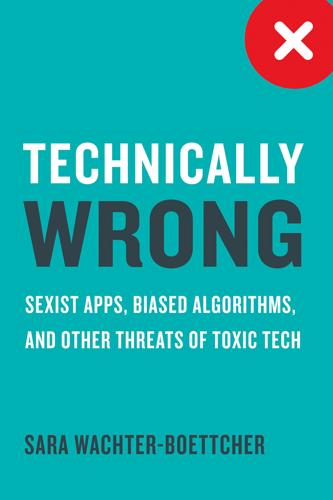
Technically Wrong: Sexist Apps, Biased Algorithms, and Other Threats of Toxic Tech
by
Sara Wachter-Boettcher
Published 9 Oct 2017
Mark Zuckerberg, “Building Global Community,” Facebook post, February 16, 2017, https://www.facebook.com/notes/mark-zuckerberg/building-global-community/10154544292806634. 52. “When FOMO Meets JOMO,” Note to Self, WNYC, January 20, 2016, http://www.wnyc.org/story/fomo-jomo. Chapter 9: Meritocracy Now, Meritocracy Forever 1. From Brian S. Hall’s now-deleted article in Forbes, “There Is No Diversity Crisis in Tech,” which he reposted at Medium.com on October 7, 2015: https://medium.com/@brianshall/the-article-on-diversity-in-tech-that-forbes-took-down-15cfd28d5639#.sp3ogqmuw. 2. Michael Young, “Down with Meritocracy,” Guardian, June 28, 2001, https://www.theguardian.com/politics/2001/jun/29/comment. 3. Sarah McBride, “Insight: In Silicon Valley Start-up World, Pedigree Counts,” Reuters, September 12, 2013, http://www.reuters.com/article/us-usa-startup-connections-insight-idUSBRE98B15U20130912. 4.
…
The funny thing about meritocracy is that the concept comes not from any coherent political ideology or sociological research. It comes from satire. In 1958, sociologist Michael Young wrote a book lampooning the then-stratified British education system. In it, he depicts a dystopian future where IQ testing defines citizens’ educational options and, eventually, their entire lives—dividing the country into an elite ruling class of “merited” people, and an underclass of those without merit. The public loved the word, but lost the point. Almost immediately, the term “meritocracy” was cropping up in a positive light—particularly in the United States (we’ve never been great at detecting British sarcasm).
…
Sequoia’s Greg McAdoo Says VC Industry Is a ‘Meritocracy,’” TechCrunch, May 23, 2012, https://techcrunch.com/2012/05/23/no-sexism-here-sequoias-greg-mcadoo-says-venture-business-is-a-meritocracy. 7. Jodo Kantor, “A Brand New World in Which Men Ruled,” New York Times, December 23, 2014, https://www.nytimes.com/interactive/2014/12/23/us/gender-gaps-stanford-94.html. 8. Lauren Orsini, “Why GitHub’s CEO Ditched Its Divisive ‘Meritocracy’ Rug,” ReadWrite, January 24, 2014, http://readwrite.com/2014/01/24/github-meritocracy-rug. 9. Adrienne LaFrance, “Is Silicon Valley a Meritocracy?” Atlantic, October 13, 2016, https://www.theatlantic.com/technology/archive/2016/10/is-silicon-valley-a-meritocracy/503948. 10.
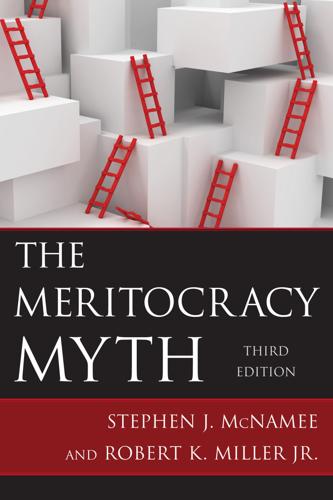
The Meritocracy Myth
by
Stephen J. McNamee
Published 17 Jul 2013
Meritocracy refers to a social system as a whole in which individuals get ahead and earn rewards in direct proportion to their individual efforts and abilities. The term meritocracy, coined by British sociologist Michael Young in his satirical novel The Rise of the Meritocracy, 1870–2033: An Essay on Education and Equality (1961), is closely linked with the idea of the American Dream. Although Young envisioned a fictional and futuristic society operating as a meritocracy, the opportunity to achieve the American Dream implies a society that in fact already operates on those principles. The term American Dream was first popularized by historian James Truslow Adams in his 1931 best-selling book, The Epic of America.
…
Even allowing genetic endowment as part of “merit,” the extent to which forces beyond one’s control influence life outcomes is substantial. While genuine equality of opportunity and achievement based only on merit are probably not possible, what is less well acknowledged by both the Left and the Right is that they may be neither entirely just nor desirable. British sociologist Michael Young, in his fictional satire The Rise of the Meritocracy (1961), envisions a society based truly on merit. In this futuristic society, individuals are assigned their place in society exclusively based on a system of rigid tests. Those who score highest on the tests fill the most important positions and get the most rewards.
…
While many Americans, for instance, proudly proclaim the virtues of “getting out of the system what you put into it” (meritocracy), they also steadfastly defend the right of individuals to dispose of their property when they die “as they personally see fit” (inheritance). These beliefs, however, pose a fundamental contradiction between freedom of choice at the individual level and equality of opportunity at the societal level. Simply put, to the extent that income and wealth are distributed on the basis of inheritance, they are not distributed on the basis of merit. While “merit” is a characteristic of individuals, “meritocracy” is a characteristic of societies as a whole. Meritocracy refers to a social system as a whole in which individuals get ahead and earn rewards in direct proportion to their individual efforts and abilities.
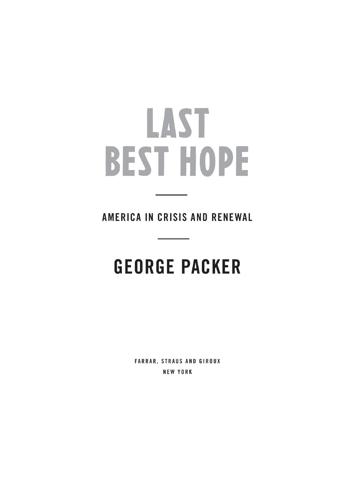
Last Best Hope: America in Crisis and Renewal
by
George Packer
Published 14 Jun 2021
It’s impossible to imagine a successful life that doesn’t involve rising from a good university into a good career. The ideal of equality still exists, but firmly within the system of meritocracy, which distributes not just economic rewards but something at least as valuable: social status. The word “meritocracy” has been around since the late 1950s, when a British sociologist named Michael Young published The Rise of the Meritocracy. He meant this new word as a warning: modern societies would learn how to measure intelligence in children so exactly that they would be stratified in schools and jobs according to their natural ability.
…
In Young’s satirical fantasy this new form of inequality would be so rigid and oppressive that it would end in violent rebellion. But the word lost its original dystopian meaning. When meritocracy was young in this country, it almost lived up to its name. In the decades after World War II, the G.I. Bill, the advent of standardized tests, the civil rights movement, and the opening of top universities to minorities, women, and children of the middle and working classes all combined to offer a path upward that probably came as close to truly equal opportunity as America has ever seen. After the 1970s, meritocracy began to look more and more like Michael Young’s dark satire. A system intended to give each new generation an equal chance to rise created a new hereditary class structure.
…
Bill Clinton, for example (who talked about “people who work hard and play by the rules”), Hillary Clinton (who liked the phrase “God-given talents”), and Barack Obama (“We need every single one of you to develop your talents, skills, and intellect”)—all products of the meritocracy. Of course individuals should be rewarded according to their ability. What’s the alternative? Either collectivization or aristocracy. Either everyone gets the same grades and salaries regardless of achievement, which is unjust and horribly mediocre, or else everyone has to live out the life into which they’re born, which is unjust and horribly regressive. Meritocracy seems like the one system that answers the American passion for equality. If the opportunities are truly equal, the results will be fair. But it’s this idea of fairness that accounts for meritocracy’s cruelty.
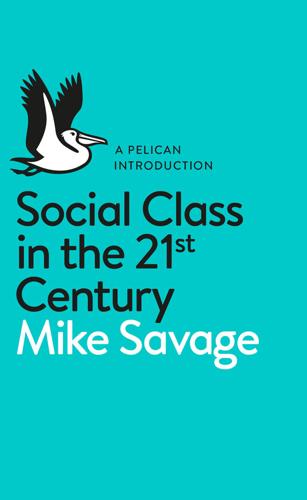
Social Class in the 21st Century
by
Mike Savage
Published 5 Nov 2015
However, we also make a bolder claim that meritocratic processes go hand-in-hand with this dynamic. We have followed Michael Young’s logic regarding meritocracy through to its conclusion, and provided ample evidence for his dystopic account. And this argument is, on the face of it, highly counter-intuitive. We might expect meritocracy to mark the end of rigid class divisions, that no longer can your friends and family ‘pull strings’ to find jobs for you, no longer can the Old Boys’ club operate. We might, indeed, imagine that meritocracy would allow more mobility and also create a social order where people would feel rewarded for their talents and energies; that anyone would be able to scale the highest mountain peaks.
…
For a much fuller elaboration of this argument, see Mike Savage, Identities and Social Change since 1940: The politics of method (Oxford: 2010) as well as Annick Prieur and Mike Savage, ‘Emerging Forms of Cultural Capital’, European Societies, 15(2), 2013, 246–67. CHAPTER 6: CLIMBING MOUNTAINS: THE SOCIAL MOBILITY EXPEDITION 1. Michael Young, The Rise of the Meritocracy 1870–2033: An Essay on Education and Equality (London: 1958). 2. Young, The Rise of Meritocracy, pp. 11–12. 3. Young, The Rise of Meritocracy, p. 12. 4. Robert Erikson and John Goldthorpe, ‘Has Social Mobility in Britain Decreased? Reconciling Divergent Findings on Income and Class Mobility’, British Journal of Sociology, 61(2), 2010, 211–30. 5.
…
For more discussion of this issue, see Chapter 10 in Bennett et al., Culture, Class, Distinction. The relationship between ethnicity, immigration and class is vital but one which, for reasons explained in the Introduction, the GBCS is poorly equipped to analyse. CHAPTER 7: A TALE OF TWO CAMPUSES: UNIVERSITIES AND MERITOCRACY 1. Michael Young, The Rise of the Meritocracy 1870–2033: An Essay on Education and Equality (London: 1958). More detailed analyses of the findings referred to in this paragraph can be found in Paul Wakeling and Mike Savage, ‘Entry to Elite Positions and the Stratification of Higher Education in Britain’, Sociological Review, 63(2), 2015, 290–320, and in P.
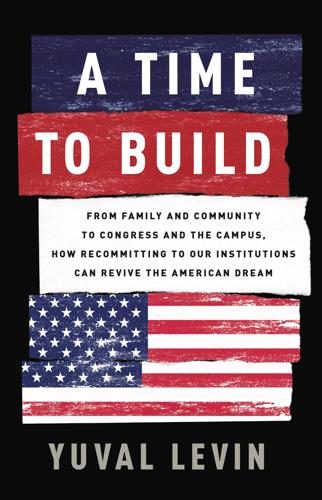
A Time to Build: From Family and Community to Congress and the Campus, How Recommitting to Our Institutions Can Revive the American Dream
by
Yuval Levin
Published 21 Jan 2020
And thus was born the meritocracy. THE TERM “MERITOCRACY” IS GENERALLY ATTRIBUTED TO MICHAEL Young, a British intellectual (and Labour Party member of Parliament) who coined it in the title of his 1958 book The Rise of the Meritocracy. The book was a work of fictional social commentary, and the term was intended to be pejorative. The book takes the form of a history of British social evolution supposedly written in 2034, which describes the replacement of Britain’s aristocratic ruling classes by a caste of the best and brightest—as measured by tests of intelligence. For Young, meritocracy was not the natural extension of democracy but a betrayal of it.
…
But the countervailing tradition, reaching back to Aristotle through Adam Smith at his best, which sees our institutions as forming us to practice the virtues rather than saving us the trouble of doing so, is far more persuasive and plausible. CHAPTER 9: BEYOND MERITOCRACY 1. Irving Kristol, “When Virtue Loses All Her Loveliness,” Public Interest, Fall 1970, 9, 12. 2. In referring to these “secular moralisms,” I have in mind for instance the appeal of Jordan Peterson, who has built a massive following by effectively telling young men to take their responsibilities more seriously. 3. Michael Young, The Rise of the Meritocracy (New York: Transaction Publishers, 2011), 11. 4. William Deresiewicz, Excellent Sheep: The Miseducation of the American Elite and the Way to a Meaningful Life (New York: Free Press, 2014), 205. 5.
…
His book essentially describes a dystopia.3 But for reformers of America’s elite institutions, many of them guilt-ridden WASPs, meritocracy did seem like an extension of democracy, because it involved broadening the criteria for joining the upper reaches of American life. Filtering for elites by testing for some objective measure of merit would create a much fairer upward path for anyone who showed ability, regardless of where he or she might come from. By the 1970s, meritocracy (employed without its original pejorative connotation) was in common parlance among American reformers, especially in higher education.
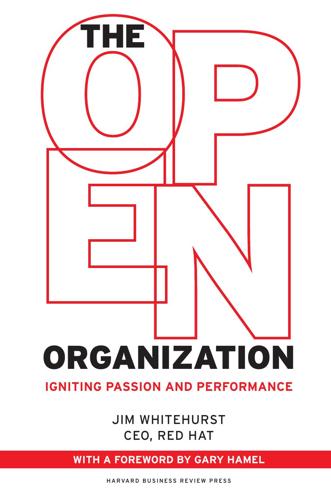
The Open Organization: Igniting Passion and Performance
by
Jim Whitehurst
Published 1 Jun 2015
Associates who make a positive impact on the business and on the culture find that they gain more influence than those who do not. That’s why we call our culture a “meritocracy,” which, if you use Wikipedia’s definition, means: A system of government or other administration (such as business administration) wherein appointments and responsibilities are objectively assigned to individuals based upon their “merits,” namely intelligence, credentials, and education.4 Michael Young coined the term in 1958 in his book, The Rise of the Meritocracy. Strangely enough, Young used the term satirically as he described a dystopian future where a person’s place in society would be linked to his or her scores on standardized tests.
…
Brook Manville and Josiah Ober, A Company of Citizens (Boston: Harvard Business School Press, 2003), 10. 2. Ibid., 135–136. 3. Burchell and Robin, The Great Workplace, 43. 4. Wikipedia, s.v. “Meritocracy,” last modified December 18, 2014, http://en.wikipedia.org/wiki/Meritocracy. 5. Liz Elting, “How I Grew: Meritocracy Helped Us Grow to a $350 Million Company,” Translations.com, http://www.translations.com/about/news/in-the-news/how-i-grew-meritocracy-helped-us-grow-350-million-company. 6. Rajendra Sisodia, Jagdish N. Sheth, and David Wolfe, Firms of Endearment (Upper Saddle River, NJ: Pearson Education, 2014), 247. 7.
…
For example, when Liz Elting, cofounder of TransPerfect (the parent company of Translations.com), was asked how her business has grown into a $350 million company with two thousand employees, she credited the culture of meritocracy they have created: We did not know from day one how this meritocracy would develop or what the best practices would be. What we did know was that a meritocracy was the only model we felt we could truly believe in and fully support. We created a foundation of accountability that not only gave our employees the motivation to succeed, but also presented management with clear opportunities to unequivocally note an employee’s success.
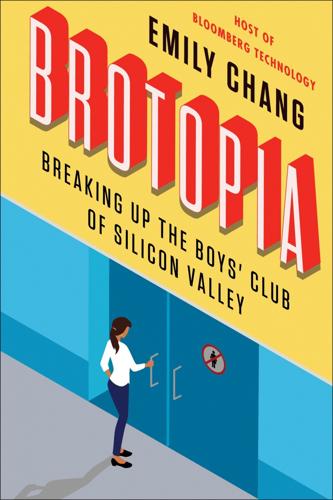
Brotopia: Breaking Up the Boys' Club of Silicon Valley
by
Emily Chang
Published 6 Feb 2018
Doesn’t that suggest that they earned it through merit? The concept of meritocracy dates back to the writings of the philosopher Confucius in ancient China. In the second century B.C., the Han dynasty implemented the first known meritocracy (though they didn’t call it by that name), promoting government officials based on their performance on civil service exams. As Confucian texts were translated during the Enlightenment, the idea spread to Europe and the United States. But we didn’t have a term for “meritocracy” until the twentieth century, when the British sociologist and politician Michael Young wrote a book in 1958 warning of how dangerous the world’s relatively new method of establishing status might be.
…
Rusli, “Square Executive Resigns Amid Sexual-Harassment Claims,” Wall Street Journal, Jan. 25, 2013, https://www.wsj.com/articles/SB10001424127887324539304578264153187663828. “If meritocracy exists”: Kantor, “A Brand New World in Which Men Ruled.” “would have died”: Roger Parloff, “Peter Thiel Disagrees with You,” Fortune, Sept. 4, 2014, http://fortune.com/2014/09/04/peter-thiels-contrarian-strategy. “It is good sense”: Michael Young, “Down with Meritocracy,” Guardian, June 28, 2001, https://www.theguardian.com/politics/2001/jun/29/comment. But is it just a coincidence: “Economic Diversity and Student Outcomes at Stanford University,” New York Times, 2017, https://www.nytimes.com/interactive/projects/college-mobility/stanford-university?
…
Castilla and Stephen Benard, “The Paradox of Meritocracy in Organizations,” Administrative Science Quarterly, Dec. 1, 2010, http://hdl.handle.net/1721.1/65884. When you are convinced: Leah Eichler, “The Problem with Working for a Supposed Meritocracy,” Globe and Mail, March 4, 2016, https://www.theglobeandmail.com/report-on-business/careers/career-advice/life-at-work/the-problem-with-working-for-a-supposed-meritocracy/article29033411. “‘Meritocracy’ takes as its core”: Megan Garber, “The Perils of Meritocracy,” Atlantic, June 30, 2017, https://www.theatlantic.com/entertainment/archive/2017/06/the-perils-of-meritocracy/532215.
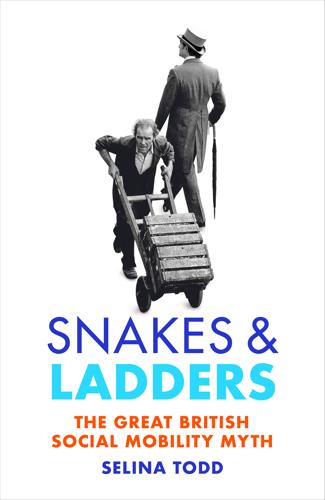
Snakes and Ladders: The Great British Social Mobility Myth
by
Selina Todd
Published 11 Feb 2021
Labour politicians chose not to distinguish between equality and meritocracy, terms that few of them used. Instead they preferred ‘fairness’ and ‘democracy’, terms whose precise meaning was ambiguous. For some MPs, the bright new future was clearly egalitarian. ‘Our human quality at the end of the war is perhaps the thing that matters most, and … we have to do whatever we can for its development’, argued Labour MP Arthur Greenwood in 1944. ‘[I]t is clear that if democracy carries any meaning in men’s minds, it must mean the abolition of class distinction’.72 Others were less sure, but few were entirely committed to meritocracy. Michael Young, the head of Labour’s research department, and largely responsible for the Party’s 1945 manifesto, Let Us Face the Future, was not a champion of complete equality, but he was resolutely opposed to meritocracy.
…
After a distinguished war career he graduated from Cambridge in 1946 and became an extramural tutor at Oxford University. Margaret Stacey, the LSE graduate who had been recruited into adult education during the war, was among his colleagues. Many adult education tutors shared Raymond Williams’ desire to assist in ‘the creation of an educated and participating democracy’.22 Like Labour’s Michael Young, many of them did not believe in meritocracy as much as in fostering greater social equality, and finding new ways to allow everyone to be an active and valued citizen. Other men and women joined the Civil Service. The excellent work done by the wartime civil servants helped to precipitate a change in recruitment practices, away from entrance examination and interviews – which tended to favour applicants from the public schools and Oxbridge – and towards promotion from the lower ranks.
…
Nevertheless, Crosland stressed, it would be vital to ensure that those who lived on the lowest rungs enjoyed a significant share of ‘income, power, and occupational prestige’, for ‘if inequality of rewards is excessively great, the creation of equal opportunities may give rise to too intense a competition, with a real danger of increased frustration and discontent.’12 Other prominent Labour politicians and supporters were less sure that the ladder could work at all. In 1958 Michael Young published his satire The Rise of the Meritocracy, 1870–2033. Posing as a social researcher writing in the mid-twenty-first century, he argued that the replacement of hereditary privilege with a social ladder based on talent would only replicate inequality. In his dystopia, the ‘five per cent’ of the most privileged were chosen ‘on merit’, but their behaviour was remarkably similar to that of the upper class they had replaced, not least in treating their ‘inferiors’ as ‘unemployable’ or as exploitable ‘domestic servants’.
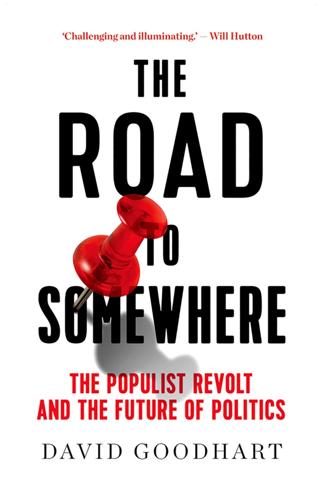
The Road to Somewhere: The Populist Revolt and the Future of Politics
by
David Goodhart
Published 7 Jan 2017
Creating many losers may be impossible to avoid in an achievement society in which you have to earn your place rather than have it assigned to you. Meritocracy is unassailable in principle but—as Michael Young saw in his famous parable The Rise of the Meritocracy—in practice it can legitimise inequality and reduce empathy for the poor. As he wrote: ‘The holders of power and possessors of wealth need, in all societies, to have the assurance of the best of moral titles to their fortune. Otherwise no ruling class can rule with the unbound assurance which is the hidden spring of charisma.’1 Meritocracy, taken too seriously, is also humiliating and offensive to the majority. As Andrew Marr has written: ‘Meritocracy suggests that those who are not at the top—struggling in the middle, or poor and powerless at the bottom—are supposed to understand that this is not their misfortune but what they, too, deserve.’2 He was writing about the Queen, and one possible reason for the enduring popularity of the monarchy is that it stands outside the system of merit and achievement.
…
But in between Britain seems to have a surprisingly high level of social churn. Perhaps in the end mobility, like happiness, is best pursued indirectly. Goldthorpe agrees: ‘I am sceptical about placing too much emphasis on mobility.’13 This is not because he supports a rigid social order, but rather because, like Michael Young, he has an old socialist’s suspicion of meritocracy and mobility, and worries about the esteem of those left behind. He would prefer, for example, to spend more money sorting out the Neets than pushing the university participation rate to 50 per cent. But there is a dilemma for mobility sceptics like Goldthorpe: a high level of social mobility risks demoralising those left behind, a low level risks demoralising those who should be rising.
…
q=cresc+rebalancing+the+economy 51.Theresa May, ‘The new role for business in a fairer Britain’, Financial Times, 21 November 2016, https://www.ft.com/content/12a839d4-af18-11e6-a37c-f4a01f1b0fa1 52.Bob Bischof, ‘Tackling the UK’s export malaise’, Reaction, 20 September 2016, http://reaction.life/tackling-uks-export-malaise/ 53.See Geoff Owen, From Empire to Europe: The Decline and Revival of British Industry since the Second World War, London, HarperCollins, 2000. 7.THE ACHIEVEMENT SOCIETY 1.Michael Young, The Rise of the Meritocracy, 1870–2033: An Essay on Education and Equality, London: Penguin, 1961. 2.Andrew Marr, ‘The Queen at 90’, The Sunday Times, 17 April 2016, www.thesundaytimes.co.uk/sto/newsreview/article1687659.ece 3.Some 22 per cent of those employed were working in semi-routine or routine jobs from July to September 2016.
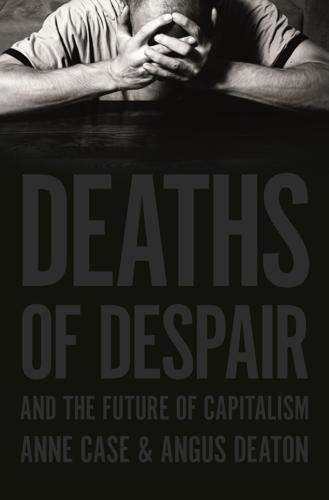
Deaths of Despair and the Future of Capitalism
by
Anne Case
and
Angus Deaton
Published 17 Mar 2020
Children born in the top 1 percent of the income distribution are ten times more likely to become inventors than those in the bottom half of the income distribution. This failure of meritocracy is leaving “lost Einsteins” who might have changed the world for the better.8 Meritocracy has its downsides too, which were recognized by the British economist and sociologist Michael Young, who in 1958 invented the term meritocracy and who predicted a social disaster as a result of its rise.9 Indeed, we have already seen one problem, that some jobs that were once open to nongraduates are now reserved for those with a college degree.
…
The gap is also widening in earnings, in family stability, and in community.2 A four-year degree has become the key marker of social status, as if there were a requirement for nongraduates to wear a circular scarlet badge bearing the letters BA crossed through by a diagonal red line. In the last half century, America (like Britain and other rich countries) has built a meritocracy that we rightly see as a great achievement. But there is a dark side that was long ago predicted by Michael Young, the British economist and social scientist who invented the term in 1958 and who saw meritocracy as leading to social calamity.3 Those who do not pass the exams and graduate to the cosmopolitan elite do not get to live in the fast-growing, high-tech, and flourishing cities and are assigned jobs threatened by globalization and by robots.
…
Geography is increasingly patterned by education, with the well educated moving to successful and innovative cities that have good jobs, good schools, and good entertainment, while the less educated are left behind in the countryside, in small towns, or in stagnant or decaying communities, places whose most talented children have moved elsewhere. Sixty years ago, Michael Young predicted that a meritocracy would bring this separation, and in chapter 5, we saw how it happened in African American communities in the 1970s and 1980s. Earnings from work provide the material support for a good life through the goods and services that earnings buy, but work matters as much or more for other aspects of life.
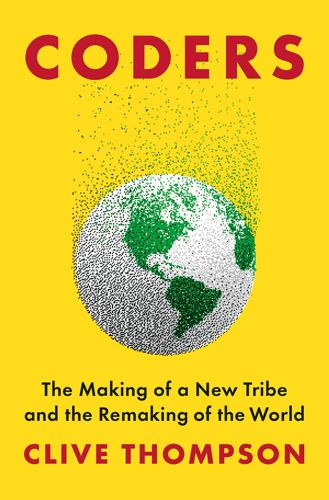
Coders: The Making of a New Tribe and the Remaking of the World
by
Clive Thompson
Published 26 Mar 2019
—you can easily craft an evolutionary story (and a definition of what “programming” entails) to get you there, which illustrates precisely why it’s difficult to use biology and evolution to explain complex society-level modern phenomena. If anything, the nature-nurture debate shows the power of the stories society tells itself about talent. People used to say that women were natural coders—they were the winners of that meritocracy. Then in the ’80s a different tale emerged. The very word meritocracy has an ironic provenance. When the British politician Michael Young wrote his novel The Rise of the Meritocracy in 1958, he intended it as a biting satire—of governmental attempts to determine an individual’s value based on an IQ test. The term was later adopted as an unironic, literal concept, something that deeply disappointed Young.
…
“right mentality to do the job”: Abbate, Recoding Gender, 67. unironic, literal concept: Michael Young, “Down with Meritocracy,” Guardian, June 28, 2001, accessed August 19, 2018, https://www.theguardian.com/politics/2001/jun/29/comment. like math or philosophy—they’re not: Sarah-Jane Leslie, Andrei Cimpian, Meredith Meyer, and Edward Freeland, “Expectations of Brilliance Underlie Gender Distributions across Academic Disciplines,” Science 347, no. 6219 (January 16, 2015): 262–65. to be the lone genius: Emilio J. Castilla and Stephen Benard, “The Paradox of Meritocracy in Organizations,” Administrative Science Quarterly 55 (2010): 543–76.
…
“To me, the most fascinating thing about computer science is that it’s the only STEM field I’m aware of where there’s this combination of people who are super highly accredited working side by side with people that just taught themselves everything,” says Johanna Brewer, who, indeed, taught herself programming beginning in middle school, then earned a PhD in information and computer science and founded several companies. There can also be, though, a fair amount of self-flattery underpinning the belief in meritocracy, as several coders added. Sometimes the desire to believe in meritocracy is a way of coping with teenage nerd damage. For anyone who grew up as an awkward introvert, feeling at sea in the ultrasocial pecking orders of high school or early corporate life, the idea that programming is a neutrally objective world is deeply appealing.
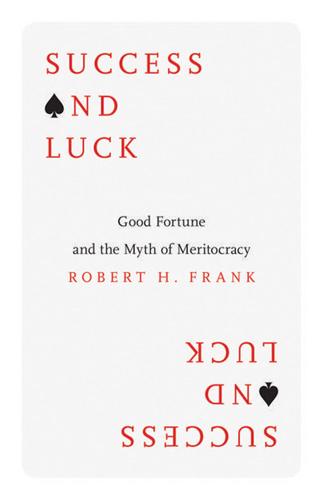
Success and Luck: Good Fortune and the Myth of Meritocracy
by
Robert H. Frank
Published 31 Mar 2016
But with demands for government services poised to continue exceeding sources of federal revenue to pay for them, such a crisis is only a matter of time. And when it does occur, the progressive consumption tax will be high on the list of options under consideration. NOTES PREFACE 1. Michael Young, The Rise of the Meritocracy, London: Transaction, 1994 (originally published in 1958). 2. Michael Young, “Down with Meritocracy, Guardian,” June 28, 2001, http://www.theguardian.com/politics/2001/jun/29/comment. 3. Michael Lewis, “Don’t Eat Fortune’s Cookie,” Princeton University’s 2012 Baccalaureate Remarks, http://www.princeton.edu/main/news/archive/S33/87/54K53/. 4.
…
Rather, it was because I believe the rhetoric of meritocracy has caused enormous harm. The term itself was coined in 1958 by the British sociologist (and later lord) Michael Young in a scathing satire of the British educational system. In The Rise of the Meritocracy, he argued that encouraging successful people to self-aggrandizingly attribute their success solely to their own efforts and abilities would actually make things worse, on balance.1 In a 2001 column reflecting on the book, he noted that although it makes good sense to appoint people to jobs on their merit, “It is the opposite when those who are judged to have merit of a particular kind harden into a new social class without room in it for others.”2 Young was chagrined that the term he’d coined as a pejorative had been so quickly co-opted as an adjective of praise.
…
Because I’ve long argued that the market systems of most developed economies are now far more meritocratic than at any time in history, I was reluctant at first to embrace Princeton’s proposed alternative, “Good Fortune and the Myth of Meritocracy.” My concerns were confirmed by the reaction of a longtime colleague when I showed him a mockup of the book’s cover. “Why SHOULDN’T companies hire the most qualified applicants?” he asked. I assured him that I was as vehemently opposed to cronyism as he was. As a practical matter, of course, no system could ever be perfectly meritocratic. But my eventual decision to go with “Good Fortune and the Myth of Meritocracy” had little to do with concern about whatever vestiges of cronyism and class privilege might persist. Rather, it was because I believe the rhetoric of meritocracy has caused enormous harm.
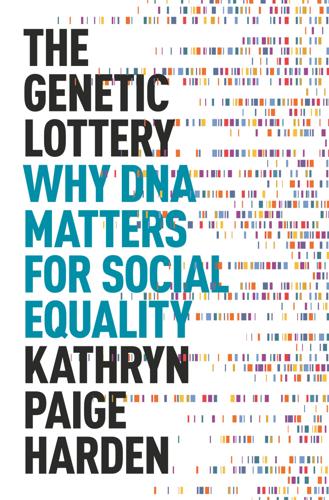
The Genetic Lottery: Why DNA Matters for Social Equality
by
Kathryn Paige Harden
Published 20 Sep 2021
On the flip side, rejecting information about genetic influences on social and economic outcomes might have the unintended side effect of increasing the blame heaped on anyone who failed to advance in their education and who is doing poorly in an economy that benefits only “skilled” workers. Stigmatization of the poor as blameworthy was the concern of Michael Young, the British socialist who first coined the term “meritocracy” to describe a dystopian future. Over forty years after first using the word “meritocracy,” Young reflected ruefully on how those who have not done well in school are held responsible for their own lack of success: “It is hard indeed in a society that makes so much of merit to be judged as having none. No underclass has ever been left as morally naked as that.”34 11 Difference without Hierarchy My older child struggled to talk.
…
Ingvild Almås, Alexander W. Cappelen, and Bertil Tungodden, “Cutthroat Capitalism versus Cuddly Socialism: Are Americans More Meritocratic and Efficiency-Seeking than Scandinavians?,” Journal of Political Economy 128, no. 5 (May 2020): 1753–88, https://doi.org/10.1086/705551. 34. Michael Young, “Down with Meritocracy,” The Guardian, June 28, 2001, https://www.theguardian.com/politics/2001/jun/29/comment. Chapter 11: Difference without Hierarchy 1. “Homelessness and Mental Illness: A Challenge to Our Society,” Brain & Behavior Research Foundation, November 19, 2018, https://www.bbrfoundation.org/blog/homelessness-and-mental-illness-challenge-our-society. 2.
…
GENOME-BLIND: Accept the logic of meritocracy while ignoring the role of genetic luck in developing skills and behaviors that are perceived as meritorious. ANTI-EUGENIC: Recognize genetics as a type of luck in life outcomes, undermining the meritocratic logic that people deserve their successes and failures on the basis of succeeding in school. America, we are told, is a meritocracy. The word is a portmanteau of merit and aristocracy. Aristocracy, in turn, is from the Greek aristokratia—aristos meaning best, and kratos meaning rule. Embedded in the term “meritocracy,” therefore, is the idea that elites in a society, i.e., people selected for positions of power, influence, wealth, and prestige, should be those selected on their merits.
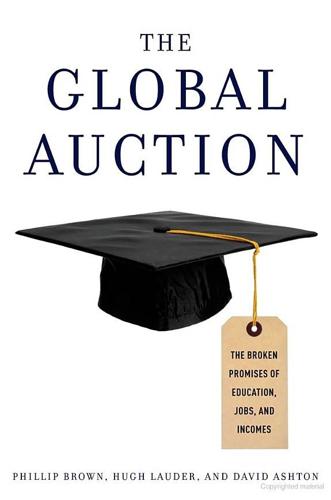
The Global Auction: The Broken Promises of Education, Jobs, and Incomes
by
Phillip Brown
,
Hugh Lauder
and
David Ashton
Published 3 Nov 2010
Commitment to the meritocratic ideal of a level playing field has been sacrificed in the battle for positional advantage. It has brought merit and the market into a head-to-head conflict. In the age-old battle between meritocratic competition and market choice that favors children from wealthier families, described by Michael Young in his classic account of The Rise of the Meritocracy, the commitment to meritocracy has been defeated by new forms of privilege, where millions are being excluded from any chance of receiving an education that would allow them an equal chance of competing with the sons and daughters of the wealthy.3 Evidence that inequalities are eating away at the capacity to rebuild the American Dream include James Heckman’s influential research showing growth in both those gaining a college education and those entering the job market with no more that a high school education.
…
Chapter Nine 1. A 26-year-old history major at a public university in Paris and a leader of the student movement UNEF. Reported by Elaine Sciolino, “History Repeats Itself in France,” The Times of India, New Delhi, March 18, 2006. 2. Times of India, http://www.indiapoised.com/ 3. See Michael Young, The Rise of the Meritocracy (Harmondsworth: Penguin, 1961). Moreover, Brown has argued that educational selection is based on the ideology of parentocracy, where the wealth and wishes of parents matter as much as the abilities and efforts of students. Here the equation “ability + effort = merit” is reformulated into “resources + preferences = choice.”
…
The growth of middle-class jobs was assumed to represent an ever-tighter relationship between human capital, jobs, and rewards, as it became more important to get the best minds working on the scientific and technological challenges of the age. In his classic study The Coming of Post-Industrial Society, published in the early 1970s, Daniel Bell highlighted the link between a rising meritocracy and economic efficiency. “The post-industrial society, in its initial logic, is a meritocracy. Differential status and differential income are based on technical skills and higher education. Without these achievements one cannot fulfill the requirements of the new social division of labor which is a feature of that society. And there are few high places open without those skills.”9 Bell’s book appeared to confirm the growing importance of human capital and the need to find new sources of economic competitiveness as American and British manufacturers were struggling to compete with leaner and more flexible competitors from Japan and Asian Tiger economies.
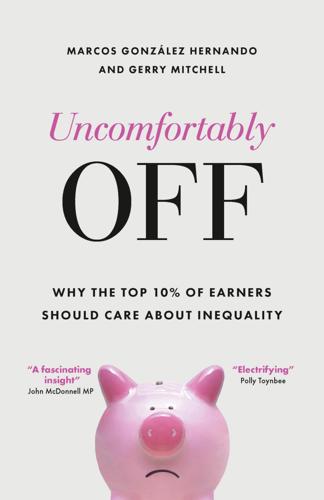
Uncomfortably Off: Why the Top 10% of Earners Should Care About Inequality
by
Marcos González Hernando
and
Gerry Mitchell
Published 23 May 2023
And that this will mean paying attention to how power is exerted in Britain. Duncan Green, in his book How Change Happens, writes that ‘[p]ositive social change requires power, and therefore attention on the part of reformers to politics and the institutions within which power is exercised’.5 In his famous 1958 book The Rise of the Meritocracy – where the term was first coined – Michael Young predicts his fictional version of the year 2034. He concedes that there will be ‘stir enough’ but nothing: more serious than a few days’ strike and a week’s disturbance, which will be well within the capacity of the police (with their new weapons) to quell […] The charter is too vague.
…
What might be preventing them from building social networks beyond their immediate circle and developing a wider sense of solidarity and belonging? Barrier 1: Belief in meritocracy A major barrier to developing a new social contract is how movements up or down the socioeconomic ladder tend to be explained. As explored in Chapter 3, many high-income earners emphasise their own part in their successes, explaining life outcomes as the result of their actions or factors they have control over: their skills, talents, willingness to work hard and the wisdom of their choices. This belief, that one’s lot in life is and should be the result of one’s abilities and graft, is often called meritocracy.2 146 Barriers to being comfortably off In the words of Danny Dorling, with increasing inequality, the more widespread the opinion becomes that: It is, or should be, the ‘fittest’ who get to the top […] that we are largely ruled by our betters, and that that is good for us.
…
There is no tradition of political organisation on which to draw.6 In 2001, four years into the last Labour government, Young reflected on what he had written in 1958, asking whether 185 Uncomfortably Off anything could be done about Britain’s new meritocratic common sense. He wrote: It would help if Mr Blair would drop the word [meritocracy] from his public vocabulary, or at least admit to the downside. It would help still more if he and Mr Brown would mark their distance from the new meritocracy by increasing income taxes on the rich, and also by reviving more powerful local government as a way of involving local people and giving them a training for local politics.7 What Young said in 1958 and 2001 remains relevant today.
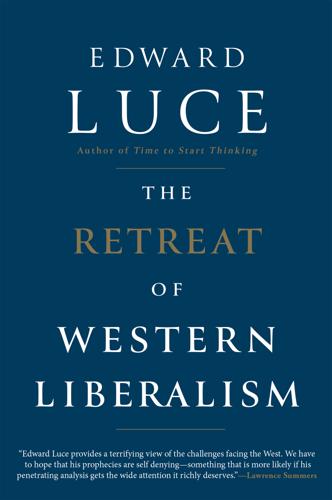
The Retreat of Western Liberalism
by
Edward Luce
Published 20 Apr 2017
In many ways these self-identification surveys mean much more than hard statistics on median income or income inequality. They express a feeling people have about being shut out from society. It is a very un-American state of mind. As is true of most of these trends, the West’s drift to pessimism has been most radical in the land of optimism. Michael Young, the British sociologist who coined the term meritocracy in his 1958 book The Rise of the Meritocracy, would feel vindicated. Though the word soon lost its irony, Young meant it as a satire on the imagined ruling classes of the future. Meritocratic elites ‘can be insufferably smug’, he said in a 2001 critique of Prime Minister Tony Blair’s misuse of the word.36 The rest, meanwhile, ‘can easily become demoralised by being looked down on so woundingly by people who have done well for themselves’.
…
Bradford DeLong, Concrete Economics: The Hamilton Approach to Economic Growth and Policy (Harvard Business Review Press, Boston, 2016), p. 10. 29 Milanovic, Global Inequality. 30 Frank, Success and Luck, p. 51. 31 Raj Chetty, David Grusky, Maximilian Hell, Nathaniel Hedren, Robert Manduca and Jimmy Narang, ‘The fading American dream: trends in absolute income mobility since 1940’, National Bureau for Economic Research working paper No. 22910 (December 2016), <http://www.nber.org/papers/w22910>. 32 Frank, Success and Luck, p. 8. 33 Richard Reeves, Dream Hoarders: How the American Upper Middle Class Is Leaving Everyone Else in the Dust, Why That Is a Problem, and What to Do about It (Brookings Institution Press, Washington DC, 2016). 34 ‘Some colleges have more students from the top 1 per cent than the bottom 60 per cent’, New York Times, 17 January 2017, <https://www.nytimes.com/interactive/2017/01/18/upshot/some-colleges-have-more-students-from-the-top-1-percent-than-the-bottom-60.html?_r=0>. 35 Frank Newport, ‘Fewer Americans identify as middle class’, Gallup, 28 April 2015, <http://www.gallup.com/poll/182918/fewer-americans-identify-middle-class-recent-years.aspx>. 36 Michael Young, ‘Down with meritocracy’, Guardian, 28 June 2001, <https://www.theguardian.com/politics/2001/jun/29/comment>. 37 I elaborate this point in my column ‘The end of American meritocracy’, Financial Times, 8 May 2016, <https://www.ft.com/content/c17d402a-12cf-11e6-839f-2922947098f0>. 38 Joe Coscarelli, ‘Spike Lee’s amazing rant against gentrification: “We been here!”’, New York Magazine, 25 February 2014, <http://nymag.com/daily/intelligencer/2014/02/spike-lee-amazing-rant-against-gentrification.html>. 39 Richard Florida, The New Urban Crisis: How Our Cities Are Increasing Inequality, Deepening Segregation, and Failing the Middle Class – and What We Can Do About It (Basic Books, New York, 2017), p. 132. 40 Ibid. 41 Ibid., p. 191. 42 Ibid., p. 159. 43 Mark Muro and Sifan Liu, ‘Another Clinton-Trump divide: high-output America versus low-output America’, Brookings, 29 November 2016, <https://www.brookings.edu/blog/the-avenue/2016/11/29/another-clinton-trump-divide-high-output-america-vs-low-output-america/>. 44 I draw this insightful point from Richard C.
…
Today it is rarer for a poor American to become rich than a poor Briton, which means the American dream is less likely to be realised in America.31 The meritocratic society has given way to a hereditary meritocracy. The children of the rich are overwhelmingly likely to stay rich. In place of churning, we have stasis. To a large extent, your life chances have been set by the time you are five. ‘[If] you want to be smart and highly energetic, the most important single step you could take is to choose the right parents,’ says Robert Frank.32 Alas, in today’s West, too many people are choosing the wrong parents. What is in a word? When it is packed with as much moral zeal as ‘meritocracy’, the answer is a great deal. A meritocrat owes his success to effort and talent.
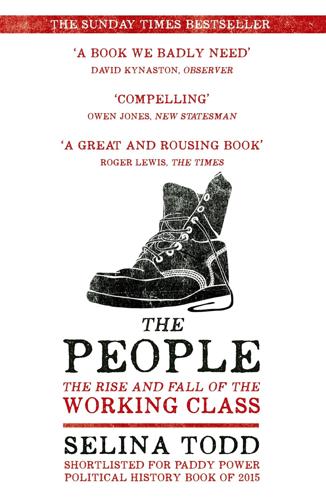
The People: The Rise and Fall of the Working Class, 1910-2010
by
Selina Todd
Published 9 Apr 2014
By 1950 the sons and daughters of servants were almost exclusively factory workers or clerks, most of them trade unionists, and all guaranteed ‘cradle to grave’ welfare provision and job security. Important though these post-war years were – and they marked the apogee of working-class people’s political and economic power – they were not ones of equality. After 1945, successive governments presented Britain as a meritocracy, in which anyone could climb the social ladder with hard work and talent. But only a few could attain ‘success’. Far from being a ‘meritocracy’, in which anyone could succeed if they worked hard, post-war Britain remained a society where birth mattered more than effort. But the years between 1940 and the mid-1970s were a period of relative prosperity and promise, especially given what came afterwards.
…
When he took over the newspaper’s ‘Atticus’ column, he ‘dumped all interviews and stuff about bishops and establishment figures’, focusing instead ‘on the new confident cockney photographers, cocky Northern actors, young fashion designers, new TV playwrights, working-class novelists and young football stars’.17 Journalists and politicians were quick to use these rising stars as proof of a new meritocracy. Far from eschewing their working-class past, these new celebrities were encouraged to embrace it – and to invent one if necessary. ‘I wasn’t really working class,’ recalled Rita Tushingham three decades later. ‘As I kept telling journalists, I came from a middle-class home, but they kept saying I was working class.’18 Politicians’ talk of a meritocracy and journalists’ celebrations of working-class teenagers’ affluence suggested that being working class meant being innovative and hard-working: hailing from a working-class background meant a star had ‘got on’ through merit and popular appeal.
…
Payne, Social Mobility and Class Structure in Modern Britain (Oxford, 1987), pp. 115–16. 55. Goldthorpe with Payne, ‘Class Structure and the Pattern of Intergenerational Fluidity’, in Goldthorpe et al., Social Mobility and Class Structure in Modern Britain; and J.M. Goldthorpe, ‘Problems of “Meritocracy”’, in A.H. Halsey et al. (eds.), Education. Culture, Economy and Society (Oxford, 1997). 56. Goldthorpe, ‘Problems of “Meritocracy”’, in Halsey et al. (eds.), Education. Culture, Economy and Society. 57. Robbins Report, p. 80. 58. Jackson and Marsden, Education and the Working Class, p. 175. See also T. Bottomore, Classes in Modern Society (London, 1965), pp. 38, 40. 59.
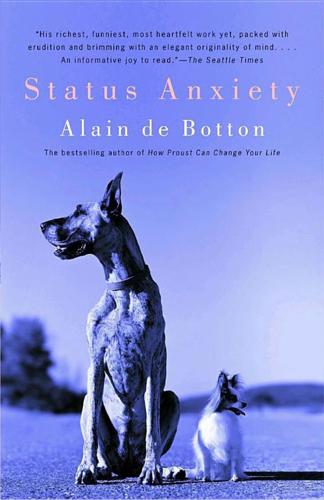
Status Anxiety
by
Alain de Botton
Published 1 Jan 2004
Andrew Carnegie, self-made industrialist and the world’s wealthiest man, 1835–1919 In the harsher climate of opinion that prevailed in certain strata of meritocratic societies, it now became possible to argue that the social hierarchy rigorously reflected the qualities of those on every rung of the ladder, and that conditions already in place ensured that the worthy would succeed and the undeserving flounder. Any tendency towards charity, welfare, redistributive measures or simple compassion was thus rendered—conveniently—unnecessary. 2. Michael Young, The Rise of Meritocracy (London, 1958): “Today all persons, however humble, know they have had every chance … If they have been labelled ‘dunce’ repeatedly they cannot any longer pretend… . Are they not bound to recognise that they have an inferior status, not as in the past because they were denied opportunity, but because they are inferior?”
…
Like many nineteenth-century reformers, Carlyle dreamt not of a world in which everyone would be financially equal, but of one in which high and low alike would come by their inequalities honestly. “Europe requires a real aristocracy,” he wrote, “only it must be an aristocracy of talent. False aristocracies are insupportable.” What he was imagining was a system whose name had not yet been coined: a meritocracy. The new ideology of meritocracy competed with two alternative notions of social organization: the egalitarian principle, calling for absolute equality in the distribution of goods among all members of society; and the hereditary principle, endorsing the automatic transfer of titles and posts (and partridge shoots) from the wealthy to their children.
…
He lives in London. More information can be found at www.alaindebotton.com. ALSO BY ALAIN DE BOTTON On Love The Romantic Movement Kiss & Tell How Proust Can Change Your Life The Consolations of Philosophy The Art of Travel CONTENTS CAUSES I. Lovelessness II. Expectation III. Meritocracy IV. Snobbery V. Dependence SOLUTIONS I. Philosophy II. Art III. Politics IV. Religion V. Bohemia DEFINITIONS Status – One's position in society; the word derived from the Latin statum or standing (past participle of the verb stare, to stand). – In a narrow sense, the word refers to one’s legal or professional standing within a group (married, a lieutenant, etc.).
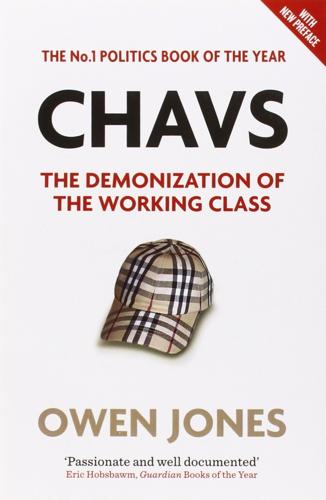
Chavs: The Demonization of the Working Class
by
Owen Jones
Published 14 Jul 2011
They were based on the assumption that the tattered remnants of the working class are on the wrong side of history --and must be made to join 'Middle England' like the rest of us. 'The new Britain is a meritocracy; declared Tony Blair upon assuming office in1997.If New Labour had an official religion, it would surely be meritocracy. But there is a dark irony in how celebrated this concept became. 'Meritocracy' was not originally intended to describe a desirable society-far from it. It was meant to raise the alarm at what Britain could become. Michael Young, who penned Labour's 1945 Manifesto, coined the phrase in his1958 book, The Rise of the Meritocracy. As he later explained, this was 'a satire meant to be a warning (which needless to say has not been heeded) against what might happen to Britain between 1958 and the imagined final revolt against the meritocracy in 2003.'
…
Matthew Taylor understands the dangers, but believes this is the best cause on offer. 'I think that meritocracy is not a bad rallying call because we're so far away from it, you know what Imean? To have a genuine meritocracy we'd have to abolish inherited wealth, we'd have to abolish private schools ... So when people say to me: "Well, meritocracy, isn't that kind of a reactionary concept and shouldn't we argue for more than that?", I can say: "Well, yeah, fine, but we're so far away from even having that." of course, New Labour never had any intention of abolishing inherited wealth or private education. Itargued for 'meritocracy' within a society rigged in favour of the middle class.
…
Itargued for 'meritocracy' within a society rigged in favour of the middle class. Meritocracy ends up becoming a rubber stamp for existing inequalities, re-branding them as deserved. When I interviewed Simon Heffer, the right-wing Telegraph columnist, he argued: 'Ithink we are still largely a meritocracy, despite the destruction of the grammar schools, and I think class is a state of mind in that sense.' Meritocracy can end up being used to argue that those at the top are there because they deserve to be, while those at the bottom are simply not talented enough and likewise deserve their place. It is used in education to belittle vocational subjects in favour of the academic.
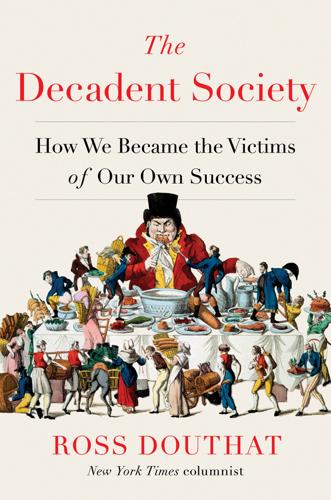
The Decadent Society: How We Became the Victims of Our Own Success
by
Ross Douthat
Published 25 Feb 2020
The actual record of the Western elite over the last generation offers reasons to doubt this claim of talent and desserts. But even if it is false, meritocracy may still shore up and protect even an ineffective elite, because it drains the talent from the provinces and the peripheries and deprives potential rivals and potential rebels of the leaders who otherwise might challenge its hegemony. This talent-draining, rival-co-opting scenario is not some outlandish conspiracy theory. It appears in the first clear description of modern meritocracy; indeed, in the book that coined the term: Michael Young’s The Rise of the Meritocracy, a work of fiction published in 1958 that masqueraded as a work of history and political analysis written in the year 2034.
…
If China ends up as another rich-but-stagnating economy with a distrusted elite barely hanging on to power, then it won’t have pioneered an alternative to Western liberalism that the rest of the world will leap to follow; it will be another case study in convergence, of liberal democracies and pseudodemocracies and would-be meritocracies all ending up in the same kind of place, as de facto oligarchies trying to manage stagnation and its discontents. Decadence Defends Itself The desire for flight from China, the desire among the very people who seem poised to guide the West’s great rival to instead decamp for New York or London or Vancouver, points to still another way that decadence is well defended: the Western order is still pretty good at weakening potential rivals through recruitment. The system that we call meritocracy, with its promise to build an elite by finding the best and brightest in every corner of society—and in a global society, every corner of the globe—advertises itself as a way to build the most talented possible upper class, the most intellectually deserving elite.
…
Piketty’s theory about the inevitable drift of capitalism was extremely controversial, and a complicated, highly technical debate sprang up around that aspect of his book. But for our purposes, it’s enough to say that Piketty’s villains, the grands rentiers (the global superrich) and petit rentiers (the mass upper class forged by meritocracy), are both instantly recognizable types, and his description of how the modern upper class has consolidated its position would be at home in Lindsey and Teles’s more libertarian analysis as well. The Pikettian left and the libertarian center right differ in which kind of rentier they are most eager to indict: Piketty and his admirers are hardest on the superrich, blaming their political influence and essential selfishness for foiling necessary large-scale redistribution, while libertarian antirentiers are more likely to argue that the richest of the rich still generally rise on their own merits (think Jeff Bezos or Warren Buffett), while it’s the mass upper class that’s really guilty of what the Brookings Institution’s Richard Reeves calls “dream hoarding”: the combined effects of inherited wealth, educational requirements, real estate prices, and tax breaks that essentially reproduce privilege from one generation to the next.
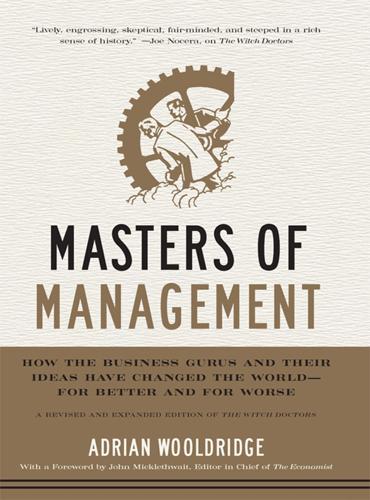
Masters of Management: How the Business Gurus and Their Ideas Have Changed the World—for Better and for Worse
by
Adrian Wooldridge
Published 29 Nov 2011
Countries that still insist on clinging to egalitarianism are paying a heavy price. Sweden, for instance, finds it hard to attract foreign talent. And across Europe, egalitarian universities are losing out to their more elitist American rivals. But the war for talent produces social maladies as well as economic benefits. Meritocracy and Its Discontents In The Rise of the Meritocracy, published in 1958, Michael Young, a British sociologist and Labor Party activist, conjured up an image of a society obsessed with talent. The date was 2034, and psychologists had perfected the art of IQ testing. But far from promoting social harmony, the preoccupation with talent had produced social breakdown.
…
He has given the symbolic analysts a sexier name—the creative class—and he has given them the starring role in everything he writes. Florida’s career-making book, The Rise of the Creative Class: And How It’s Transforming Work, Leisure and Everyday Life (2002), is an odd mixture of Michael Young’s The Rise of the Meritocracy (1958) and Candace Bushnell’s Sex in the City. Florida argues that the creative class is at the heart of the post-industrial economy. In 1900, fewer than 10 percent of Americans were doing creative work. Most broke their backs in farms or factories. Today the figure is 30 percent.16 He also provides a portrait of how “creatives” live, chronicling the casual-dress revolution (“The No-collar Workplace”), the fashion for binge working (“The time warp”), and the fuzzy boundaries between work and leisure.
…
Bradford Johnson, James Manyika, and Lareina Yee, “The next revolution in interactions,” The McKinsey Quarterly, 2005, no. 4. 8. Burchell and Robin, The Great Workplace, p. 165. 9. Eugenia Levenson, “Harvard Girl,” Harvard Magazine, 2002. 10. John Micklethwait and Adrian Wooldridge, A Future Perfect: The Challenge and Promise of Globalization (London: Random House, 2000), pp. 225–45. 11. Michael Young, The Rise of the Meritocracy 1870–2033: An Essay on Education and Equality (London: Thames & Hudson, 1958). 12. T. S. Eliot, Notes Towards a Definition of Culture (London: 1948), p. 101. 13. Liam Hudson, The Cult of the Fact: A Psychologist’s Autobiographical Critique of His Discipline (London: Harper & Row, 1972), p. 47. 14.
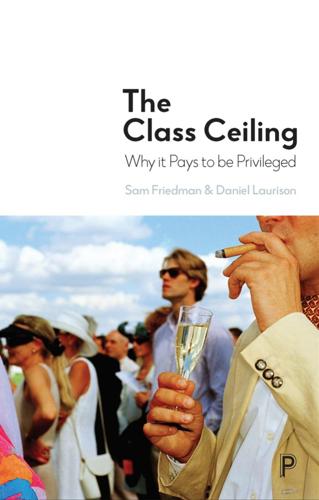
The Class Ceiling: Why It Pays to Be Privileged
by
Sam Friedman
and
Daniel Laurison
Published 28 Jan 2019
Yet it is also unlikely that skills, talents, motivations or effort have no bearing on career success; of course firms and managers try to reward those who are the most effective in their jobs. Much of the book is dedicated to attempting to disentangle the ways class origin, and other attributes, shape how ‘merit’ is evaluated. Weber (1992, p 271). 285 The Class Ceiling 10 11 12 13 14 15 16 17 18 19 20 21 22 23 24 25 26 27 28 29 30 31 The term ‘meritocracy’ was popularised by Michael Young in a dystopian novel meant to critique the vision of a society based entirely on ‘merit’ (Young, 2001). Major (1990). Blair (1999). Beck (1992, 1996); Beck and Willms (2003). Giddens (1991). Bauman (2000). First quote: Beck (1992, p 128); second quote: Beck et al (1994, p 13). These scholars were careful not to argue that the end of class meant that everyone had become middle class or affluent.
…
But such routine judgements also reflect the fact that the explanatory tool that most reach for when making sense of who gets ahead is ‘meritocracy’.3 As we explained in the Introduction to this book, there is much ambiguity over the meaning and definition of ‘merit’.4 Yet in everyday life, meritocracy is regularly invoked to explain and justify the different outcomes experienced by people like Nathan and Jim; that talent, plus effort, will always shine through. The main principles of ‘meritocracy’ are often formalised by academics through the concept of ‘human capital’. This is normally measured by calculating the sum of an individual’s credentials, experience and training, and is seen by many, especially in economics, as the key determinant of a person’s productive capacity and, therefore, their earning potential.5 But one of the biggest problems with the human capital thesis is that it implies that people operate in a vacuum, that their work life is cut off from outside influences and that their career progression is driven solely by their own skills, ‘merits’ and actions.
…
Saha, A. (2017a) ‘The politics of race in cultural distribution: Addressing inequalities in British Asian theatre’, Cultural Sociology, 11(3), 302-17 (https://doi.org/10.1177/1749975517708899). Saha, A. (2017b) Race and the cultural industries, Malden, MA: Polity Press. Sandberg, S. (2015) Lean in: Women, work, and the will to lead, London: W.H. Allen. Saunders, P. (1995) ‘Might Britain be a meritocracy?’, Sociology, 29(1), 23-41 (https://doi.org/10.1177/00380385950290010 03). Saunders, P. (2003) ‘Reflections on the meritocracy debate in Britain: A response to Richard Breen and John Goldthorpe’, The British Journal of Sociology, 53(4), 559-74 (https://doi.org /10.1080/0007131022000021489). Savage, M. (1997) ‘Social mobility and the survey method: A critical analysis’, in D.
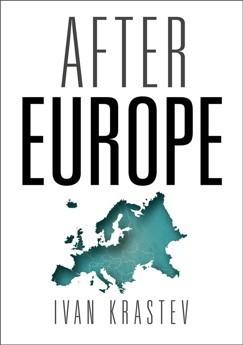
After Europe
by
Ivan Krastev
Published 7 May 2017
It seems obvious that a meritocracy—a system in which the most talented and capable people are placed in leading positions—is preferable to a plutocracy, gerontocracy, aristocracy, and perhaps even democracy (the rule of the majority). But what we are witnessing today is a nonconfidence vote exactly against this vision of society. Europe’s meritocratic elites aren’t hated simply because of the bigoted stupidity of raging populists or the confusion of ordinary people. Michael Young, the British sociologist who in the middle of the last century coined the term “meritocracy,” would not be surprised by the turn of events.18 He was the first to explain that even though “meritocracy” might sound good to most people, a meritocratic society would be a disaster.
…
Maria Szonert Binienda, “Smoleńsk Maze: Crash of the Polish Air Force One, Smoleńsk, Russia, April 10, 2010,” Status Report 2014, Libra Institute (Cleveland: Libra Institute, 2014), 3. http://www.smolenskcrashnews.com/pdf/2014_Report/2014_Smolensk_Status_Report.pdf. 15. Ibid., 21. 16. “Big Brother Gives Politics Lesson,” BBC News, June 3, 2003. http://news.bbc.co.uk/2/hi/uk_news/politics/2956336.stm. 17. George Papaconstantinou, Game Over: The Inside Story of the Greek Crisis (Athens: Papadopoulos, 2016), 10. 18. Michael Young, The Rise of the Meritocracy 1870–2033: An Essay on Education and Society (London: Thames and Hudson, 1958). 19. Robert Ford and Matthew Goodwin, “Britain After Brexit: A Nation Divided,” Journal of Democracy 28 (January 2017): 17–30. 20. “Italy Referendum ‘Is a Choice between Nostalgia and the Future,’” The Local, November 7, 2016. https://www.thelocal.it/20161107/italy-referendum-is-a-choice-between-nostalgia-and-the-future. 21.
…
Michael Young, the British sociologist who in the middle of the last century coined the term “meritocracy,” would not be surprised by the turn of events.18 He was the first to explain that even though “meritocracy” might sound good to most people, a meritocratic society would be a disaster. It would create a society of selfish and arrogant winners and angry and desperate losers. It will be not an unequal society but a society in which inequality is justified on the basis of differences in achievement. The triumph of meritocracy, Young understood, would lead to a loss of political community. When analysts examine the Brexit vote in retrospect, they often agree that one of the key bottom-up drivers that determined the outcome was “a slow but relentless shift in the structure and attitudes of the electorate, the growing dominance of the middle classes, and of socially liberal university graduates.”19 In the 1960s, more than half of those with jobs in Britain did manual work, and less than 10 percent of the electorate had a university degree.
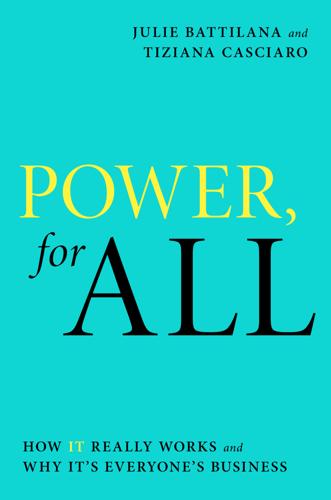
Power, for All: How It Really Works and Why It's Everyone's Business
by
Julie Battilana
and
Tiziana Casciaro
Published 30 Aug 2021
(Arlington, VA; PBS Distribution, 2018); Wendy Zukerman, “How Science Created Morons,” Gimlet, May 25, 2018, https://gimletmedia.com/shows/science-vs/o2ho5g. 41 Felicia Pratto et al., “Social Dominance Orientation: A Personality Variable Predicting Social and Political Attitudes,” Journal of Personality and Social Psychology 67, no. 4 (1994): 741–63. 42 The term “meritocracy” was first coined in: Michael Young, The Rise of the Meritocracy (London: Thames and Hudson, 1958). 43 For an early study of the concept of the “self-made man,” see Irving Wyllie, The Self-Made Man in America: The Myth of Rags to Riches (New Brunswick, NJ: Rutgers University Press, 1954). 44 Abhijit Banerjee and Esther Duflo, Poor Economics: A Radical Rethinking of the Way to Fight Global Poverty (New York: PublicAffairs, 2012), 256.
…
Even though science has since established that poverty is largely a societal problem, not a genetic one, the narrative that the poor are lazy and not as smart as others, and therefore deserve to be where they are, continues to be used to justify inequality. More recently, another legitimizing myth has become dominant: that of meritocracy.41 In a meritocracy, power supposedly accrues to the most talented and the hardest-working, irrespective of, say, demographics, family connections, or inherited wealth—thereby implying that those who fail to rise lack the necessary ability or elbow grease.42 The myth of meritocracy conveyed through stories of self-made men and, lately, women, who started from nothing but ascended the power hierarchy entirely on their own through their extraordinary abilities and courage, has become especially prevalent in many capitalist societies.43 Books, movies, and the media reinforce this narrative in their portrayals of people whose financial worth often serves as a proxy for success.
…
And yet, as philosopher Michael Sandel remarked, “when the meritocratic sorting machine has done its work, those on top find it hard to resist the thought that they deserve their success and that those on the bottom deserve their place as well.”45 This is how the myth of meritocracy contributes to justifying and reinforcing current power hierarchies. Be they rooted in religion, pseudoscience, the belief in meritocracy, or some other legitimizing myth, the stories we tell ourselves to justify the status quo can become so ingrained that eventually we take the existing hierarchies for granted.46 They become invisible, like the air we breathe.
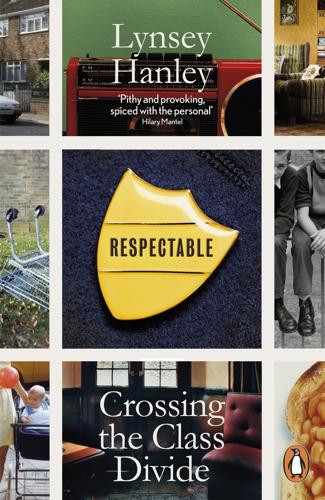
Respectable: The Experience of Class
by
Lynsey Hanley
Published 20 Apr 2016
You could say to yourself: ‘I am representative of my class, we are learners just like everyone else, and now we have the chance we are here to learn.’ Or you could say: ‘I am representative of my class, this school bears no resemblance to the life I have outside it, and I shouldn’t be here.’ The historian David Kynaston has examined the influence of the Butler Act on Michael Young’s part-satirical, part-polemicial 1958 book The Rise of the Meritocracy, about a future British society in which intelligence-testing and educational hot-housing produce a new elite based on ‘merit’ as opposed to inherited position, but ends up replicating the injustices of the old hierarchy. Kynaston weighs up what it meant to be a ‘classic meritocrat’ in the late fifties: to qualify on these terms you had to pass ‘the triple historical test of (a) being born in 1933 or later, (b) being working class and (c) going to grammar school as a direct beneficiary of the 1944 Education Act and using that education as a ladder for further advancement’.6 Dennis Potter, the television playwright and coalminer’s son, passes Kynaston’s test; the celebrated photographers Don McCullin, David Bailey and Terence Donovan don’t, on account of the fact that their success was achieved without the aid of the 11-plus.
…
I remember in 1999 travelling into central London on the tube one Friday evening, probably heading to a gig in a sticky-floored hellpit or perhaps, now that I had a job in the media, going out for a better class of pizza: one with a charred, as opposed to a cheese-stuffed, crust. The train stopped at Bethnal Green, where in the fifties Peter Willmott and Michael Young (author of The Rise of the Meritocracy) had based their study of extended families in the East End.1 A pair of young working-class women, aged no more than twenty I reckon, got on and spent the next few stops passing between them a bottle of Moët champagne, treating it as only a relative luxury. Yeah, we’ve got champagne, their tiddly nonchalance said.
…
The Bill Douglas Trilogy comprises My Childhood (1972), My Ain Folk (1973), and My Way Home (1978) 2. Gillies, V., ‘Raising the “Meritocracy”: Parenting and the Individualization of Social Class’, Sociology, vol. 35, no. 5 (December 2005), p. 839 3. Evans, G., Educational Failure and Working Class White Children in Britain (Palgrave, 2006), p. 11 4. FOI release, 17 March 2011: https://www.gov.uk/government/publications/gcse-results/gcse-results 5. Gillies, ‘Raising the “Meritocracy” ’, p. 845 6. McRobbie, A., ‘The culture of working-class girls’, from ‘Working-class Girls and the Culture of Femininity’, MA thesis presented to Centre for Contemporary Cultural Studies, University of Birmingham, 1977 7.

Pedigree: How Elite Students Get Elite Jobs
by
Lauren A. Rivera
Published 3 May 2015
Yet in reality, despite these small numbers of cases and the popular narratives that celebrate them, movement from the very bottom to the very top of the economic ladder has become exceedingly rare.25 A True Meritocracy? In many ways, the aristocracy of old has in fact been replaced by a meritocracy—though perhaps not according to the conventional usage of the term. The word meritocracy was coined by sociologist Michael Young in his satire The Rise of the Meritocracy.26 In it, Young looks back from a fictitious, futuristic England in which school and work placements are allocated strictly by merit, as measured by performance on intelligence tests.
…
See http://www.nytimes.com/2014/07/30/upshot/when-the-college-admissions-battle-starts-at-age-3.html?emc=eta1&abt=0002&abg=1 (accessed October 24, 2014). 30. Although we currently talk about meritocracy as a positive concept, Young was much more critical of it. In fact, fifty years after his book was released, he apologized for introducing the term, which had taken on a life and meaning of its own far from what he intended. Young believed that a meritocracy—as he conceived it—was dangerous and even harmful because in this type of system the upper classes came to believe that their elevated position was deserved. He reflected, “It is good sense to appoint individual people to jobs on their merit.
…
The “leader in every business we compete in,” he explained, the bank was growing and needed “good, young people to drive the business.” The company culture, although competitive and high stakes, was not cutthroat. In fact, it was infused with friendship and solidarity. Moreover, because the firm was “a true meritocracy,” new hires could be confident that “if you work hard and do well, you’ll be rewarded handsomely, through salary, bonuses, and title.” Devin also invoked the familiar refrain, “We’re the best and we only take the best.” Then he offered (literally) “just a few words” about what the investment banking division did (“we bring together buyers and sellers”) before moving on to describe the company’s analyst training program.
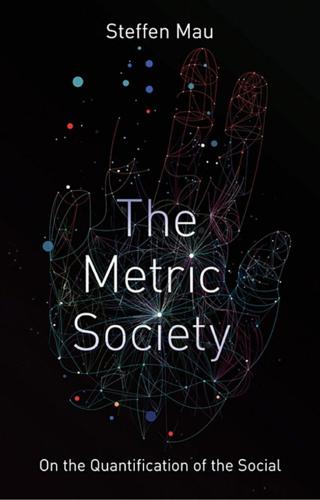
The Metric Society: On the Quantification of the Social
by
Steffen Mau
Published 12 Jun 2017
It is therefore only logical that neoliberalism should install a system of continuous audits and ‘tests’ (Boltanski & Chiapello 2005) in which each individual has to keep proving themselves. In his sociological satire The Rise of Meritocracy – inspired by Aldous Huxley's novel Brave New World and responsible for inventing this now familiar term – Michael Young (1994 [1958]) anticipates the issue of performance measurement by nearly sixty years. Only by successfully establishing a ‘mental climate’ focused on objective and quantifiable standards, the book suggests, is it possible to enforce a true (‘total’) meritocracy – a society caricatured by Young with critical intent. Quantitative data are extremely useful to the political agenda of economization in that they allow forms of non-hierarchical governance.
…
Barely questioned notions are institutionalized via metric representations, navigating us through a cognitively and normatively pre-structured value space, and our perception of difference is accordingly shaped by the numbers around us. How radically different the status world might look if we drew on other criteria, and how contingent the question of worth ultimately is, are issues explored by Michael Young in his futuristic book on meritocracy: ‘Were we to evaluate people … according to their kindliness and their courage, their imagination and sensitivity, their sympathy and generosity, there could be no classes…. Every human being would then have equal opportunity, not to rise up in the world in the light of any mathematical measure, but to develop his own special capacities for leading a rich life’ (1994 [1958]: 159).
…
Wilson, Robin (1998) ‘New research casts doubt on value of student evaluations of professors’, Chronicle of Higher Education 44/19 (pp. A12–A14). Wolf, Gary (2010) ‘The data-driven life’, New York Times Magazine (28 April), www.nytimes.com/2010/05/02/magazine/02self-measurement-t.html?_r=o. Young, Michael (1994 [1958]) The Rise of Meritocracy, New Brunswick, NJ: Transaction. Zapf, Wolfgang (1976) Gesellschaftspolitische Zielsysteme, Frankfurt am Main and New York: Campus. Zillien, Nicole, Gerrit Fröhlich and Mareike Dötsch (2015) ‘Zahlenkörper. Digitale Selbstvermessung als Verdinglichung des Körpers’ in Präsenzen 2.0. Medienkulturen im digitalen Zeitalter, ed.
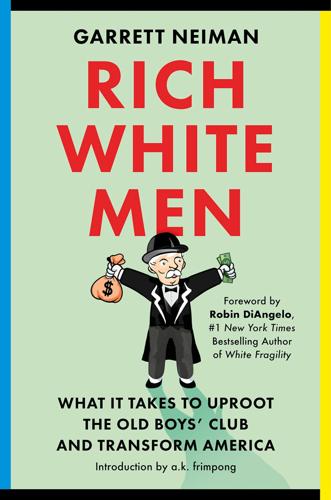
Rich White Men: What It Takes to Uproot the Old Boys' Club and Transform America
by
Garrett Neiman
Published 19 Jun 2023
It is the most fundamental principle in our founding documents and it is what originally distinguished us from the old Europe.”2 Equal opportunity is a sister concept to meritocracy, a system that offers power and resources on the basis of talent, effort, and achievement rather than social class. Part of the reason rich white men are so committed to the idea, it seems to me, is that the legitimacy of our power relies on the public’s belief that America functions as a meritocracy. Equal opportunity and meritocracy are alluring, aspirational ideas. It’s convenient to believe we have nearly realized such a system. Most of the rich white men I have talked to say that, while there is still work to do to achieve these ideals, America is on the right path and will arrive soon.
…
Acknowledging the truth about compounding unearned advantages will do more to set us free than any lie we tell ourselves ever could. CHAPTER 2 WEALTH AND OPPORTUNITY To turn $100 into $110 is work. To turn $100 million into $110 million is inevitable. —EDGAR BRONFMAN SR., BILLIONAIRE PHILANTHROPIST AND HEIR TO THE SEAGRAM FORTUNE MYTH: America is a meritocracy that offers equal opportunity. Anyone who has ever struggled with poverty knows how extremely expensive it is to be poor. —JAMES BALDWIN, AMERICAN WRITER AND ACTIVIST REALITY: American capitalism favors those who have access to capital. And in America, access to capital is highly unequal.
…
Nowhere in the McKinsey employee handbook does it say that female employees are responsible for undervalued, administrative work. Nor does it say that male employees are entitled to the bodies of their female colleagues, or that female employees must band together to protect themselves from perpetrators. McKinsey boasts about its “caring meritocracy,” but many of the white men in charge seem reluctant to acknowledge the ways that the organization struggles to be caring and meritocratic with respect to how it treats its female employees. My impression is that McKinsey is more interested in landing seven-figure contracts to advise other companies on diversity and inclusion than it is in cleaning up its own shop internally.
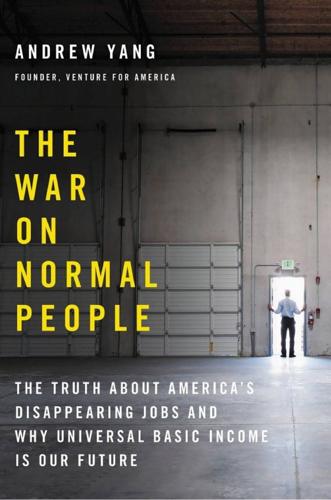
The War on Normal People: The Truth About America's Disappearing Jobs and Why Universal Basic Income Is Our Future
by
Andrew Yang
Published 2 Apr 2018
He has a particularly mild, high-functioning form and will, I believe, lead an amazing and fulfilling life. We are in a fortunate position to be able to provide a lot for our son at the right time. There are families around the country who are not as fortunate. The meritocracy was never intended to be a real thing—it started out as a parody in a British satire in 1958 by Michael Young. At the time, a world where “intelligence fully determined who thrived and languished was understood to be predatory, pathological and far-fetched,” observes journalist David Freedman. Today, we’ve made it real and embraced and exalted it. The logic of the marketplace is seductive to all of us.
…
We will read articles with concern about the future and think about how to redirect our children to more fertile professions and livelihoods. We will retweet something and contribute here and there. We will occasionally reflect on the fates of others and shake our heads, determined to be among the winners in whatever the new economy brings. The logic of the meritocracy is leading us to ruin, because we are collectively primed to ignore the voices of the millions getting pushed into economic distress by the grinding wheels of automation and innovation. We figure they’re complaining or suffering because they’re losers. We need to break free of this logic of the marketplace before it’s too late.
…
Entrepreneurs,” and millennials are on track to be the least entrepreneurial generation in modern history in terms of business formation. It turns out that depressed, indebted, risk-averse young people generally don’t start companies. This will have effects for decades to come. But more profoundly, there is something deeply wrong if even the winners of the mass scramble to climb into the top of the education meritocracy are so unhappy. They are asking, “What are we striving and struggling for?” No one knows. The answer seems to be “to try to join the tribes in the coastal markets and work your ass off,” even as those opportunities become harder to come by. If you don’t like that answer, there are very few others.
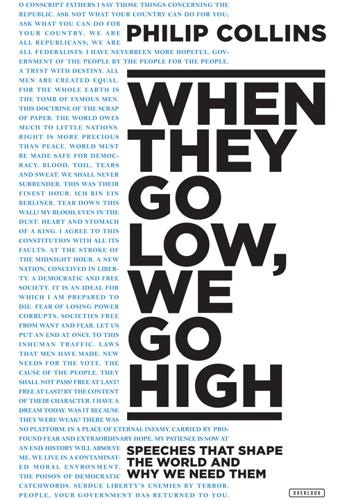
When They Go Low, We Go High: Speeches That Shape the World – and Why We Need Them
by
Philip Collins
Published 4 Oct 2017
It was, to cite the title of Bagehot’s famous 1867 work, the English constitution to which progress is owed rather than the works of Marx and Engels or ersatz political heroes of the political Right like Sir Oswald Mosley. The real heroes of the story are Orator Hunt, John Bright, Richard Cobden, Robert Peel and Benjamin Disraeli. Taken together, their words describe a country gradually moving forwards. That term comes from Michael Young’s 1958 book The Rise of the Meritocracy, and it was not meant kindly. Young’s book is a parable of a society in which intelligence has become the governing criterion of society and the bedrock of a new, self-satisfied elite. The poor, who previously had their misfortune to blame for their benighted circumstances, are now told that they merit their lowly status.
…
Did you ever in your puff see such a perfect perisher?”’ The Rise of the Meritocracy England, or rather Britain, had sent out a message to the world, as Sir Oswald Mosley had asked. England did live and it did march again. It did so slowly, democratically, quietly. It achieved something for which it is hard to give thanks, which is a rather temperate, dull political life. The condition of England has improved slowly but this utopia like every other is elusive and the quest goes on. Britain is still not a thoroughgoing meritocracy. Birth still accounts for too great a part of destiny, as Neil Kinnock pointed out.
…
While we are thus unconstrained in our private business, a spirit of reverence pervades our public acts; we are prevented from doing wrong by respect for the authorities and for the laws, having a particular regard to those which are ordained for the protection of the injured as well as those unwritten laws which bring upon the transgressor of them the reprobation of the general sentiment. This speech contains democratic multitudes. Here is the first usage of the cliché that some might have thought a New Labour coinage: the many not the few. Here is ‘equal justice to all’, which later becomes the subject of a speech by Thomas Jefferson. Here is equality before the law, modern meritocracy, the private liberty of the citizen, respect for the public interest, protection of the vulnerable, the dignity of the institutions of state, and here is the court of public opinion. In this passage Pericles is inventing the democratic idiom, fashioning the phrases that come to define government by the people.
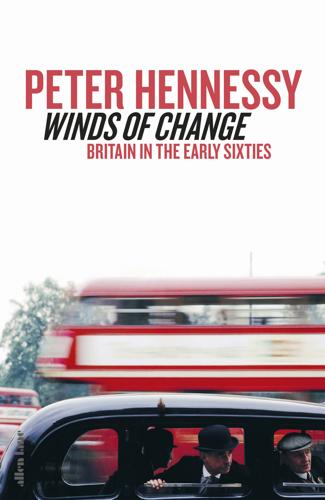
Winds of Change
by
Peter Hennessy
Published 27 Aug 2019
Gratitude to the Trustees of the Harold Macmillan Book Trust for permission to quote from unpublished passages of the Macmillan diaries and to the staff of the Bodleian Library at the University of Oxford, where they are preserved. Thanks also to Faber and Faber Ltd for permission to quote from Philip Larkin’s ‘Homage to a Government’ and ‘Annus Mirabilis’, both collected in High Windows. List of Illustrations 1. Terry Thomas and Peter Sellers in I’m Alright Jack, 1959. Alamy. 2. Front cover of Michael Young’s The Rise of the Meritocracy, Pelican, 1961 edition. 3. Tony Hancock in The Bedsitter, 1961. Getty Images. 4. Harold Macmillan and President John F. Kennedy meet at Key West, Florida, March 1961. Getty Images. 5. General Charles de Gaulle and Macmillan at the Chateau de Rambouillet, December 1962. TopFoto. 6.
…
If I can be sure of one thing in these fluid times, I am certain that they will continue to do so, arousing love and fascination in equal measure. 1. Trying to bridge the class divide: Terry Thomas and Peter Sellers attempt to negotiate in I’m Alright Jack. 2. ‘IQ+Effort=Merit’: Michael Young’s satire and warning about the excessive pursuit of meritocracy, paperbacked in 1962, was one of the books that defined the era. 3. Tony Hancock in The Bedsitter, 1961: Fighting vainly the tedium of a Sunday in bedsit-land. 4. ‘… trying to win him by ideas’: Macmillan and Kennedy meet at Key West, Florida, March 1961. 5.
…
Harold had achieved it’.18 Re-reading those speeches now, one can detect three target audiences: the electorate as a whole (their government-in-waiting character); the Labour Party itself and its ever-lurking centrifugal tendencies; and the rising meritocracy, humanities trained and scientifically literate alike, of whom, with his feel for history, his economics and his statistical agility, he was the incarnation. As Peter Clarke caught it, Wilson ‘was the first major leader to represent the new ruling class – an upwardly mobile Oxbridge meritocracy recruited through provincial grammar schools – which was to take over during the next twenty-five years producing Heath as well as Healey, Jenkins as well as Thatcher’.19 Read together, as they should be, the three early 1964 speeches, together with Scarborough, represent the most impressive political oratory of the age, the rhetorical fulcrum of Sixties politics.
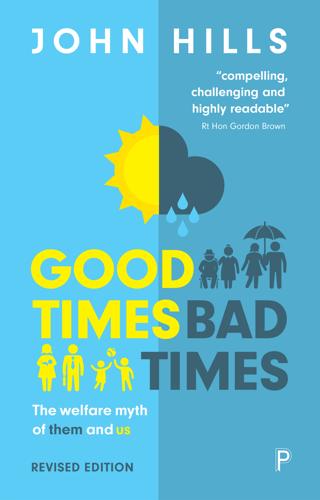
Good Times, Bad Times: The Welfare Myth of Them and Us
by
John Hills
Published 6 Nov 2014
What happens in the ‘early years’ is clearly important, but advantage and disadvantage reinforce themselves at successive stages throughout the life cycle. As the ‘Great Gatsby curve’ relationship suggests, this makes it extremely hard to achieve equality of opportunity for future generations in societies where there are large differences in economic outcomes within the current generation. What is often forgotten is that Michael Young’s 1958 book, The rise of the meritocracy, which introduced the word, was a satire, not a blue print. Its point was the smugness of those who rose to the top of such a society and believed not only that they deserved whatever rewards flowed from that, but also that their own children would deserve them too, reflecting the advantages of their inherited abilities, as well as the way they would be brought up.
…
Even US President George W. Bush took an Act through Congress entitled, ‘No child left behind’. The phrase often used to describe the aim is that of achieving a ‘meritocracy’. As Theresa May put it in her 2016 party conference speech, “… my vision is for Britain to be a Great Meritocracy.”68 Putting it more precisely in a paper in 2001, a Cabinet Office official under the last Labour government explained this as follows:69 By a meritocracy is meant a society in which the most able and committed people can succeed in attaining the most desirable, responsible and well-rewarded positions. Unless one believed ability and commitment were (either in whole or in part) determined by one’s social class origins, the features of such a society would include high rates of social mobility and the absence of any association between class origins and destinations, ie equality of opportunity.
…
Fenton, A. (2011) Housing benefit reform and the spatial segregation of low-income households in London, Cambridge: Department of Land Economy, University of Cambridge. Finch, D. (2016) Universal challenge: Making a success of Universal Credit, London: Resolution Foundation. Frank, R.H. (2016) Success and luck: Good fortune and the myth of meritocracy, Princeton, NJ: Princeton University Press. Fullerton, D. and Rao, N. (2016) The lifecycle of the 47%, NBER Working Paper 22580, Cambridge, MA: National Bureau of Economic Research. Glennerster, H. (2012) ‘Why was a wealth tax for the UK abandoned?: Lessons for the policy process and tackling wealth inequality’, Journal of Social Policy, vol 41, no 2, pp 233–49.
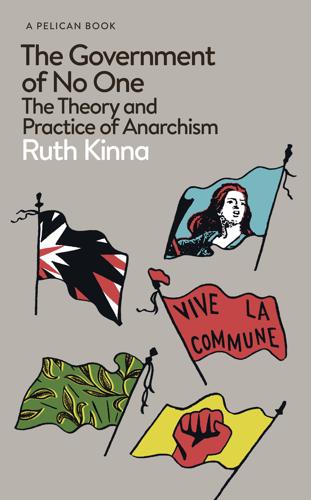
The Government of No One: The Theory and Practice of Anarchism
by
Ruth Kinna
Published 31 Jul 2019
Krebs, Shifu, Soul of Chinese Anarchism (Lanham: Rowman & Littlefield, 1998), pp. 106, 119. 54 Alexander Berkman, ABC of Anarchism (London: Freedom Press, 1980 [1929]), p. 42. 55 Oscar Neebe, Autobiographies of the Haymarket Martyrs, online at https://libcom.org/library/neebe-oscar-autobiography [last access 14 June 2018]. 56 Adolph Fischer, Autobiographies of the Haymarket Martyrs, online at https://libcom.org/library/fischer-adolph-autobiography [last access 14 June 2018]. 57 Max Stirner, The False Principle of Our Education, trans. Robert H. Beebe, ed. James J. Martin (Colorado Springs: Ralph Myles, 1967 [1842]), pp. 12–13. 58 Michael Young, The Rise of the Meritocracy (Harmondsworth: Penguin, 1958). Colin Ward comments on Michael Young in Colin Ward and David Goodway, Talking Anarchy (Nottingham: Five Leaves, 2003), pp. 91–2. 59 Colin Ward, Talking Schools (London: Freedom Press, 1995), online at https://libcom.org/library/talking-schools-colin-ward. 60 Peter Kropotkin, Fields, Factories and Workshops (London: Thomas Nelson, 1912 [1898]), p. 378, online at https://theanarchistlibrary.org/library/petr-kropotkin-fields-factories-and-workshops-or-industry-combined-with-agriculture-and-brain-w#toc5 [last access 17 November 2017]. 61 Leonard Ayres, ‘Military Drill in High Schools’, The School Review, 25 (3), March 1917, p. 157 [157–60]. 62 Ward, Talking Schools, p. 68. 63 Herbert Read, The Education of Free Men (London: Freedom Press, 1944), pp. 4–5. 64 Paul Goodman, The Moral Ambiguity of America: The Massy Lectures for 1966 (Toronto: CBC Publications, 1966), p. 15. 65 Goodman, The Moral Ambiguity of America, p. 9. 66 Paul Goodman, Compulsory Miseducation (Harmondsworth: Penguin, 1971 [1962]). 67 Goodman, The Moral Ambiguity of America, p. 40. 68 Goodman, The Moral Ambiguity of America, p. 78. 69 Goodman, The Moral Ambiguity of America, p. 76. 70 Paul and Percival Goodman, Communitas: Means of Livelihood and Ways of Life, 2nd edn (New York: Vintage, 1960 [1947]). 71 Goodman, The Moral Ambiguity of America, p. 86. 72 Stirner, The False Principle of Our Education. 73 Frederick Lohr, Anarchism: A Philosophy of Freedom (London: Frederick Lohr, n.d. [1941/42]), p. 53. 74 Michael Bakunin, ‘All-Round Education’ [1869], in Robert M.
…
Since the nineteenth century, anarchists have argued that state regulation of education enables governments to mould or set curricula, select and enforce languages of instruction, reinforce patriarchy through gendered training programmes and build allegiance to manufactured national cultures. Equality of access to schools and the crumbling of education into instruction reconstruct the master-servant relationship and cultures of domination. Moreover, elitism is maintained even though scholasticism has been replaced by meritocracy. Indeed, the normalization of elitist values can be gauged by the embrace of meritocracy as a principle of national education in the era of mass instruction.58 Tracing the rejection of compulsory schooling to Godwin, Colin Ward, one of the most influential anarchists of the twentieth century, modelled his concept of anarchist education on three principles: the rejection of state education, the ditching of classroom learning and the rebalancing of education towards practical skills and away from book-learning.59 Inspired by the private schools which working people had established in parts of the UK to educate their children before they were forced to send them to state institutions, Ward disputed the necessity and value of state education.
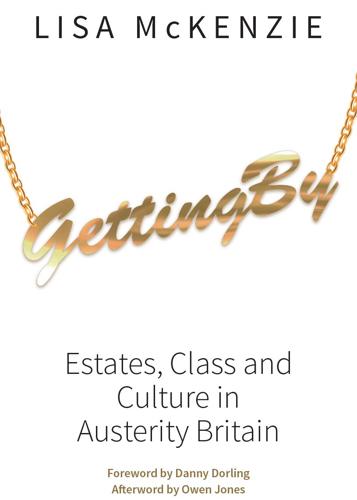
Getting By: Estates, Class and Culture in Austerity Britain
by
Lisa McKenzie
Published 14 Jan 2015
That’s how people get born into it and when that system of money has you got you into the system of education like the Nottingham Girls High School.” What she is saying here is that she believes in the ‘common understanding’ of the discourse of ‘middle-class meritocracy’. The narrative behind this is that the middle class deserve their social advantages through merit alone, and those advantages go unseen and unquestioned; consequently, working-class meritocracy is about working-class disadvantages being visible and linked to visible behaviour (Sayer, 2005, pp 61-9). Julie believed that those who had money, or who were born into it, must have deserved their wealth and success even if it was through the hard work of an ancestor, while she saw her own apparent failure as hers alone.
…
By 1970, as Poverty: The forgotten Englishmen was published, the 10,000 houses in St Ann’s had been earmarked for slum clearance, and many of the families were already being moved out to the larger, newly built sprawling suburban council estates on the outskirts of the city. Similar slum clearance programmes were occurring throughout the UK, from Glasgow down to the East End of London. Michael Young and Peter Willmott preserved their fears of the future for working-class communities in Family and kinship in East London (2007 [1957]), sometimes known appropriately as ‘Fakinel’. Michael Collins (2004) and Lynsey Hanley (2007) have also recently mapped their own family histories of slum clearance to council estate in Birmingham and South London respectively.
…
They became known and named, stigmatised because of where they lived, and their practices and behaviours became scrutinised as problems within themselves, rather than methods for managing the difficult situations they encountered. These arguments regarding the places where the poor live and their behaviour and practices being to blame for all social ills are not new. I would like to say that these arguments are new and ground-breaking, but they are not, which makes them all the more poignant. Michael Young and Peter Willmott (2007 [1957]) found similar practices within London’s East End in the early 1950s. Oscar Lewis (1961) also argued that local value systems were used within poor neighbourhoods in Mexico City to compensate for what was not available; his theory of the culture of poverty was then used by neoliberal politicians to blame the poor for their poverty by focusing only on behaviour while ignoring the conditions in which they had to live.
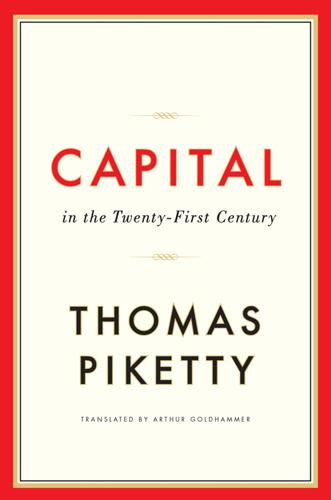
Capital in the Twenty-First Century
by
Thomas Piketty
Published 10 Mar 2014
Note that livestock was an important part of capital and expenses. In November 1789, Young sold his horse in Toulon for 600 livres tournois (or four years of annual wages for an “ordinary servant”). The price was typical for the time. See the online technical appendix. 45. Michael Young expressed this fear in The Rise of Meritocracy (London: Thames and Hudson, 1958). 46. The question of the salary scale for civil servants gave rise to many political conflicts in this period. In 1792, revolutionaries had tried to establish a restricted pay scale with a ratio of 8:1 (it was finally adopted in 1948 but was very quickly circumvented by a system of opaque bonuses for the highest civil servants that still exists today).
…
From the perspective of the twenty-first century, these types of assets may seem old-fashioned, and it is tempting to consign them to the remote and supposedly vanished past, unconnected with the economic and social realities of the modern era, in which capital is supposedly more “dynamic.” Indeed, the characters in nineteenth-century novels often seem like archetypes of the rentier, a suspect figure in the modern era of democracy and meritocracy. Yet what could be more natural to ask of a capital asset than that it produce a reliable and steady income: that is in fact the goal of a “perfect” capital market as economists define it. It would be quite wrong, in fact, to assume that the study of nineteenth-century capital has nothing to teach us today.
…
Unfortunately, the data available for addressing issues of educational cost and access in the United States and France are extremely limited. Both countries attach a great deal of importance to the central role of schools and vocational training in fostering social mobility, yet theoretical discussion of educational issues and of meritocracy is often out of touch with reality, and in particular with the fact that the most prestigious schools tend to favor students from privileged social backgrounds. I will come back to this point in Chapter 13. The Limits of the Theoretical Model: The Role of Institutions Education and technology definitely play a crucial role in the long run.
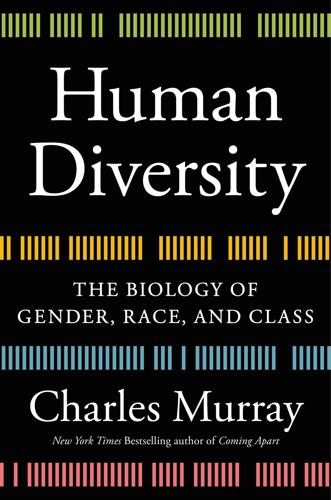
Human Diversity: The Biology of Gender, Race, and Class
by
Charles Murray
Published 28 Jan 2020
But many everyday decisions have an option that has an objectively higher probability of producing an outcome that the individual does not want. For those thousands of decisions over the course of a year, g is useful in reducing the number of mistakes.12 The general mental factor g helps people navigate the caprices and complications of everyday life.13 g HAS NOTHING TO DO WITH MERIT I deliberately avoid the word meritocracy to describe a society in which able people rise to the top, because the most important single ingredient, g, is a matter of luck. I’m willing to believe that people have some control over their industriousness, perseverance, resilience, and other personal qualities that have brought them success, even though those qualities are partly heritable. g is different.
…
Herrera, Alexandra Ycaza, Jiaxi Wang, and Mara Mather. 2018. “The Gist and Details of Sex Differences in Cognition and the Brain: How Parallels in Sex Differences Across Domains Are Shaped by the Locus Coeruleus and Catecholamine Systems.” Progress in Neurobiology. Advance online publication. Herrnstein, Richard J. 1973. I.Q. in the Meritocracy. Boston: Little, Brown. Herrnstein, Richard J., and Charles Murray. 1994. The Bell Curve: Intelligence and Class Structure in American Life. 1996 ed. New York: Free Press. Hershkovitz, Israel, Gerhard W. Weber, Rolf Quam et al. 2018. “The Earliest Modern Humans Outside Africa.” Science 359 (6374): 456–59.
…
Science 359 (6374): 424. Korenman, Sanders, and David Neumark. 1991. “Does Marriage Really Make Men More Productive?” Journal of Human Resources 26 (2): 282–307. Korenman, Sanders, and Christopher Winship. 2000. “A Reanalysis of the Bell Curve: Intelligence, Family Background, and Schooling.” In Meritocracy and Economic Inequality, edited by Kenneth Arrow, Samuel Bowles, and Steven Durlauf. Princeton, NJ: Princeton University Press. Koscik, Tim, Dan O’Leary, David J. Moser et al. 2009. “Sex Differences in Parietal Lobe Morphology: Relationship to Mental Rotation Performance.” Brain and Cognition 69 (3): 451–59.
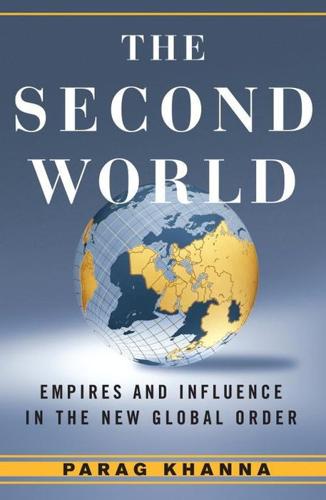
Second World: Empires and Influence in the New Global Order
by
Parag Khanna
Published 4 Mar 2008
Western scholars predict that economic openness will lead to democratization, but not only do Asian governments collude with elites to prevent any challenge to their control over public goods and the law, but democracy is even less in demand because many Asian countries actually have good leaders ( junzi) who do not want to become the prince of a Confucian maxim who is wrong but not contradicted, thus bringing ruin to his country.*50 The “Asian compact” features open societies but closed polities, restoring democracy to its place as a means to an end—not the highest virtue, but just one agenda item among many. It is ironic that the West’s great rival should come from a Confucian-based meritocracy of elites, since this idea is firmly rooted in Plato’s Republic, which calls for rule by wise philosopher kings.25 Singapore and Malaysia’s liberalizing quasi-democracy is the preferred East Asian model today. There are opposition parties and elections, but not for the highest office. Succession proceeds by selection, not election.26 This collective egocentrism prevents the state from being hijacked by majority ethnic group interests, which would lead to the unraveling of multiethnic states like Malaysia.
…
Lee’s one-word answer to explain Singapore’s success is “confidence,” for he has sought to be “correct, not politically correct.”16 Under Lee’s “Nothing is free” value system, rich and poor alike adjust to incentives—fares, fines, fees, penalties—for excessive consumption or even multiple car ownership. (The city’s famous caning policy, a punishment in addition to prison time for a wide variety of crimes, was actually introduced by the British.) For Lee, democracy has no intrinsic value; results always trump process.17 The government’s meritocracy is based on the model of Royal Dutch Shell. Singaporean parliamentarians are the world’s highest-paid, making them virtually corruption-free. They travel to capitals around the region emphasizing accountability, effectiveness, pragmatism—but not democracy. Singapore’s constituency councils operate underneath, but feed indirectly into, the ruling party structure, a preferred model for much of Asia.
…
In a way, it is: Confucianism is making a comeback in its own homeland, just in time to legitimize the Party the way it does other East Asian regimes. Confucianism broadly justifies the Party’s twin pillars of state capitalism and social democracy, emphasizing stability, respect for authority, meritocracy, and leadership by example.48 A statue of Confucius now stands in a lotus lake on the campus of Beijing’s elite Tsinghua University. No matter what ideological adjustments the Party makes, there remain several inviolable “no-nos”: no religious freedom for China’s estimated forty million Christians and thirty million Muslims (known as Hui), which no emperor has ever allowed.
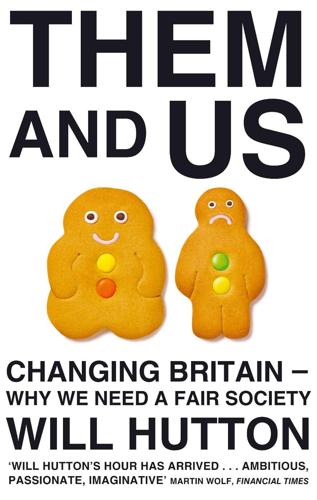
Them And Us: Politics, Greed And Inequality - Why We Need A Fair Society
by
Will Hutton
Published 30 Sep 2010
Private schools are just the most obvious of a series of stratagems that cumulatively hoard opportunity, defend incumbency and prove that much of what happens to any individual in Britain is ascribed by birth. We have scarcely moved on from a pre-Enlightenment class structure. Social reformer Michael Young feared that meritocracy would turn into a de facto aristocracy whose members are, in reality, gifted their position by birth but disguise their lineage by passing exams and seeming to be conventionally clever. His nightmare is becoming a reality. The poor are deserving, too Poverty, in addition to all its other debilitations, is monochrome and dreary – both for those who are poor and for the rest of society.
…
The same YouGov survey discovered that appearing on a reality television programme was a popular career option among teenagers.17 Another poll found 26 per cent of sixteen–nineteen-year-olds believe they will easily secure a career in sports, entertainment or the media. This is hardly surprising. The saturation coverage the media devotes to the likes of The X Factor, The Apprentice and Dragons’ Den raises a false illusion of a meritocracy that does not exist in quotidian lived reality. It is a British version of bread and circuses for the hoi polloi in ancient Rome. The people are served up a populist exemplar of merit to divert them from the wider social truth that so little exists. And if they can be convinced that they might be catapulted to success, they are less likely to criticise the high rewards of those already at the top.
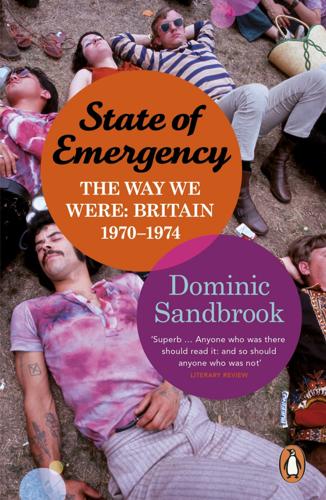
State of Emergency: The Way We Were
by
Dominic Sandbrook
Published 29 Sep 2010
Certainly in the financial world he has stimulated a new aggressiveness, unleashing energies and money-mindedness: he loves to watch his young protégés discover their money-making potential, as he discovered his ten years before. The link with Heath was more than merely metaphorical. Slater donated thousands of pounds to the Conservative Party, praised Heath as the ‘personification of meritocracy in politics’ and urged him to ‘generate an atmosphere in which success and profit in business are regarded as important and in the interest of the country’, while Walker became one of Heath’s more effective ministers. And Slater Walker was good to Heath, who bought shares in the firm, as well as its satellite companies Ralli and Tokengate, in 1965, and sold them five years later for £21,500 – worth more than ten times that in today’s money.22 What contemporaries often called the ‘new capitalism’ left a deep imprint on popular culture, manifested not just in the fawning profiles of entrepreneurs like Jim Slater, but in television series like ATV’s The Power Game and the BBC’s The Trouble Shooters, with their endless boardroom battles, hostile takeovers and merciless power struggles.
…
And everything you say about inflated wage demands confirms it.’26 Given that Heath’s ministers spent more money on social services than any of their predecessors, planned to expand the NHS and state education, pumped millions into Upper Clyde Shipbuilders and Rolls-Royce, and rapidly abandoned their early economic rigour in an attempt to get people back to work, it is ironic that they were perceived as granite-hearted bastards. The problem for Heath, though, was that he could never shake off the albatross of Selsdon Man. By talking so much about competition, enterprise and meritocracy, he had earned the reputation of a ruthless modernizer, the political equivalent of Jim Slater, slashing through the red tape of the welfare state. Even though the union leaders knew that this image was a myth, their members were convinced it was true. On top of that, Heath had become the symbol of a deeper change sweeping through British society: the rise of the ‘self-made men’, ambitious and assertive grammar school boys like Slater and Merroney, impatient with tradition, determined to wring every possible penny from a society ripe for development.
…
‘I said that I never take work home,’ said a service manager from St Albans. ‘That’s true – not paper work. But unfortunately it remains in my head. There are the usual domestic problems as a result.’ And with wives and mothers increasingly joining the workplace, the report’s conclusion was bleakly prophetic. ‘Strains will be inescapable,’ wrote Michael Young and Peter Willmott, warning that if the trends continued, ‘there will inevitably be more divorces’.11 Even though more middle-class managers brought their work home at evenings and weekends, the suburban home remained an idealized refuge from the pressures of the office. Mass home ownership was a relatively recent phenomenon: in 1950, just over one in four families had owned their own home, but by 1970 half of them did so.
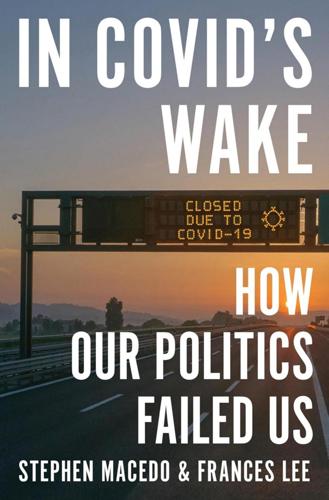
In Covid's Wake: How Our Politics Failed Us
by
Stephen Macedo
and
Frances Lee
Published 10 Mar 2025
While incorporating a broader range of specialists may be better than confining deliberation to public health experts alone, all academic specialists w ill tend to be drawn from the elite knowledge classes. “Our most respected professional organizations constantly act as bulwarks of the status quo,” argues one skeptic.43 If “we ever have a really tyrannical dictatorship in this country,” observes Dexter, “it w ill probably develop, like Michael Young’s Meritocracy or Aldous Huxley’s Brave New World, from glorification of specialists.”44 It is also vital that there is adequate opportunity to hear directly and indirectly from members of the public who are less highly schooled and so less socialized into the values and commitments of elite and professional classes.